Notable Alumni
While many accomplished professionals have participated and passed through the AEASP, some impactful individuals influence the field of public policy, economics, community development and much more! Check some of them out below!
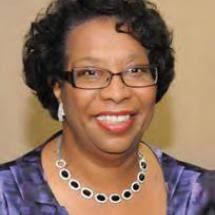
Shelley White-Means, Ph.D.
1976 Northwestern
Shelley White-Means is Professor of Health Economics in the College of Graduate Health Sciences at the University of Tennessee Health Science Center. Dr. White-Means’ research specialty is health disparities facing vulnerable populations. This work specifically focuses on the underlying social and economic root factors associated with disparities in health outcomes and health care utilization. Her current focus is on reducing racial disparities in breast cancer mortality in Memphis, where these disparities have ranked highest in the nation.
Dr. White-Means teaches graduate courses in health economics, health policy, and health disparities. A former President of the National Economic Association and current member of the National Academy of Social Insurance, she received funding from the National Institute on Minority Health and Health Disparities to establish CHEER, a community-based health disparities research center. Dr. White-Means holds a PhD and MA in economics from Northwestern University, and a BA in economics from Grinnell College.

Anthony Chan, Ph.D.
1978 Northwestern
Dr. Chan received his BBA in Finance & Investments from Baruch College in 1979. In 1983 he received his M.A. in Economics followed by his Ph.D. in Economics in May 1986 from the University of Maryland. From 1985-1986 Anthony spent time at the Board of Governors of the Federal Reserve in Washington, DC as a Doctoral fellow.
He was a Economics Professor at the University of Dayton from 1986 to 1989 and successfully published many academic articles and then joined the Federal Reserve Bank of New York as an Economist from 1989 to 1991. He was a Senior Economist at Barclays de Zoete Wedd Government Securities, a Government Securities Primary Dealer, from 1991 to 1994. Dr. Chan joined JP Morgan in mid-1994 and retired in May 2019.
Anthony is also a member of the prestigious Blue-Chip Monthly Forecasting panel, as well as the following other forecasting panels: National Association of Business Economists Quarterly Macro Panel and The Reuters, Bloomberg and Dow Jones Weekly Economic Indicator panels. In addition, he served on the Economic Advisory Committee of the American Bankers Association from 2001-2002.
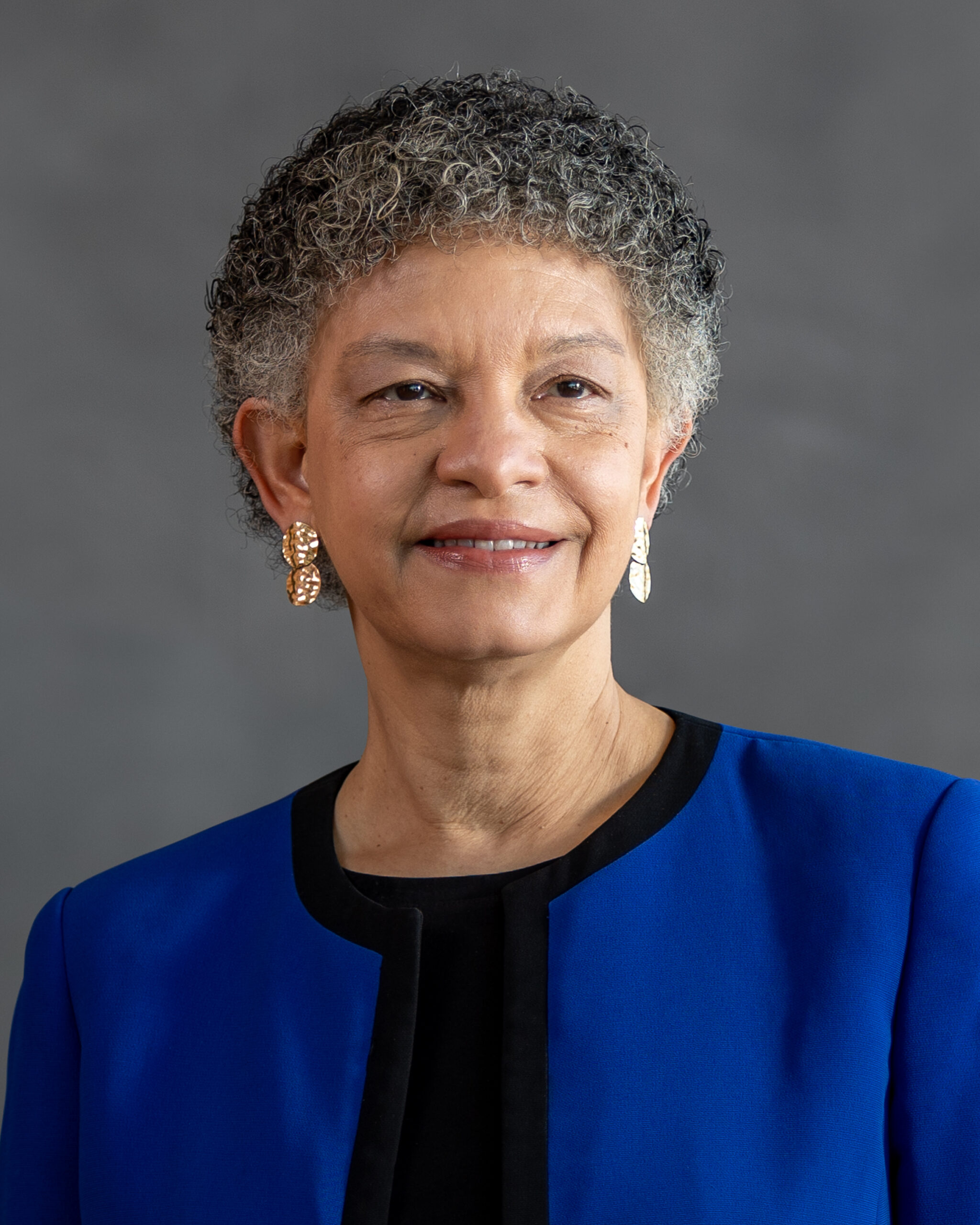
Susan Collins Ph.D.
1978 Northwestern
Susan M. Collins is president and CEO of the Federal Reserve Bank of Boston, which is part of the U.S. central bank. She is a participant on the Federal Open Market Committee, which sets U.S. monetary policy.
Since taking office in July 2022, Collins oversees all of the bank’s activities – including economic research and
analysis; banking supervision and financial stability efforts; community economic development activities; and a wide
range of payments, technology, and finance initiatives.
Collins is an international macroeconomist with a lifelong interest in policy and its impact on living standards. She
has published widely and served as a provost, dean, professor, research scholar, and board member at a variety of universities and organizations, including the University of Michigan, the Brookings Institution, Georgetown and Harvard Universities.
Collins earned her Ph.D. in economics at the Massachusetts Institute of Technology, and her undergraduate degree
at Harvard.
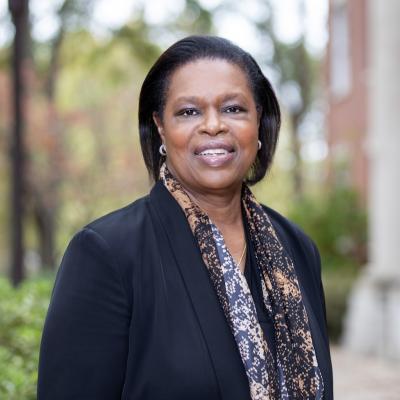
Kaye Husbands Fealings, Ph.D.
1979 Northwestern
Kaye Husbands Fealing is the Assistant Director of the Social, Behavioral and Economic Sciences at the National Science Foundation (NSF) and co-chair of the Subcommittee on Social and Behavioral Sciences of the Committee on Science of the National Science & Technology Council (NSTC). She is the former Dean of the Ivan Allen College of Liberal Arts at the Georgia Institute of Technology and a former Chair of the School of Public Policy Georgia Tech, where she currently holds the title professor. She specializes in science of science and innovation policy, the public value of research expenditures, and broadening participation in STEM fields and the workforce.
Prior to her positions at Georgia Tech, Husbands Fealing taught at the Humphrey School of Public Affairs, University of Minnesota, and she was a study director at the National Academy of Sciences. Prior to the Humphrey School, she was the William Brough professor of economics at Williams College, where she began her teaching career in 1989. She developed and was the inaugural program director for NSF's Science of Science and Innovation Policy program and co-chaired the Science of Science Policy Interagency Task Group, chartered by the Social, Behavioral and Economic Sciences Subcommittee of the NSTC. At NSF, she also served as an Economics Program director. Husbands Fealing was a visiting scholar at Massachusetts Institute of Technology’s Center for Technology Policy and Industrial Development, where she conducted research on NAFTA’s impact on the Mexican and Canadian automotive industries, and research on strategic alliances between aircraft contractors and their subcontractors.
Husbands Fealing holds a Ph.D. in economics from Harvard University, and a B.A. in mathematics and economics from the University of Pennsylvania.

Darrell J. Gaskin, Ph.D.
1982 Yale
Darrell J. Gaskin, PhD MS is the William C. and Nancy F. Richardson Professor in Health Policy and Director of the Hopkins Center for Health Disparities Solutions in the Department of Health Policy and Management at the Johns Hopkins Bloomberg School of Public Health. Dr. Gaskin is a health services researcher and health economist. He is an internationally recognized expert in health and healthcare disparities. He seeks to identify and understand how contextual factors influence access to care, quality of care and health outcomes for minority, low socioeconomic status, and other vulnerable populations. His research strives to develop and promulgate policies and practices that address the social determinants of health and promote equity in health and well-being.
Dr. Gaskin is an international leader in health policy and health economics. He was elected a member the National Academics of Medicine. He serves on the Congressional Budget Office Panel of Health Advisors. He is a member of the Maryland Commission on Health Equity, Health Equity Policy Committee. He serves on the Board of Directors of the American Society of Health Economists. He served eleven years on the Board of Directors of AcademyHealth, and was Board Chair from 2016-2017. He served on the Board of Scientific Counselors of the National Center for Health Statistics of the Centers for Disease Control and Prevention from 2017-2020. He is a 2019 recipient of the Presidential Early Career Award for Scientists and Engineers. In April 2021, he was appointed as a research associate of the National Bureau of Economic Research.
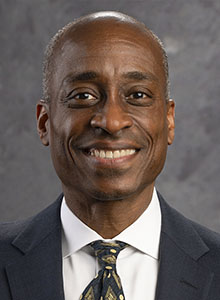
Philip N. Jefferson, Ph.D.
1982 Yale
Philip N. Jefferson took office as the Vice Chair of the Board of Governors of the Federal Reserve System on September 13, 2023, for a four-year term. Dr. Jefferson has served as a member of the Board of Governors of the Federal Reserve System since taking office on May 23, 2022, to fill an unexpired term ending January 31, 2036.
Most recently, Dr. Jefferson was vice president for academic affairs and dean of faculty and the Paul B. Freeland Professor of Economics at Davidson College.
Before then, Dr. Jefferson served as chair of the Department of Economics at Swarthmore College, where he was the Centennial Professor of Economics.
Prior to this position, Dr. Jefferson was an economist at the Board of Governors of the Federal Reserve System.
Dr. Jefferson’s other past roles include being president of the National Economic Association. He also served on the Vassar College Board of Trustees and the Board of Advisors of the Opportunity and Inclusive Growth Institute at the Federal Reserve Bank of Minneapolis.
Dr. Jefferson received a BA in economics from Vassar College and an MA and a PhD in economics from the University of Virginia.
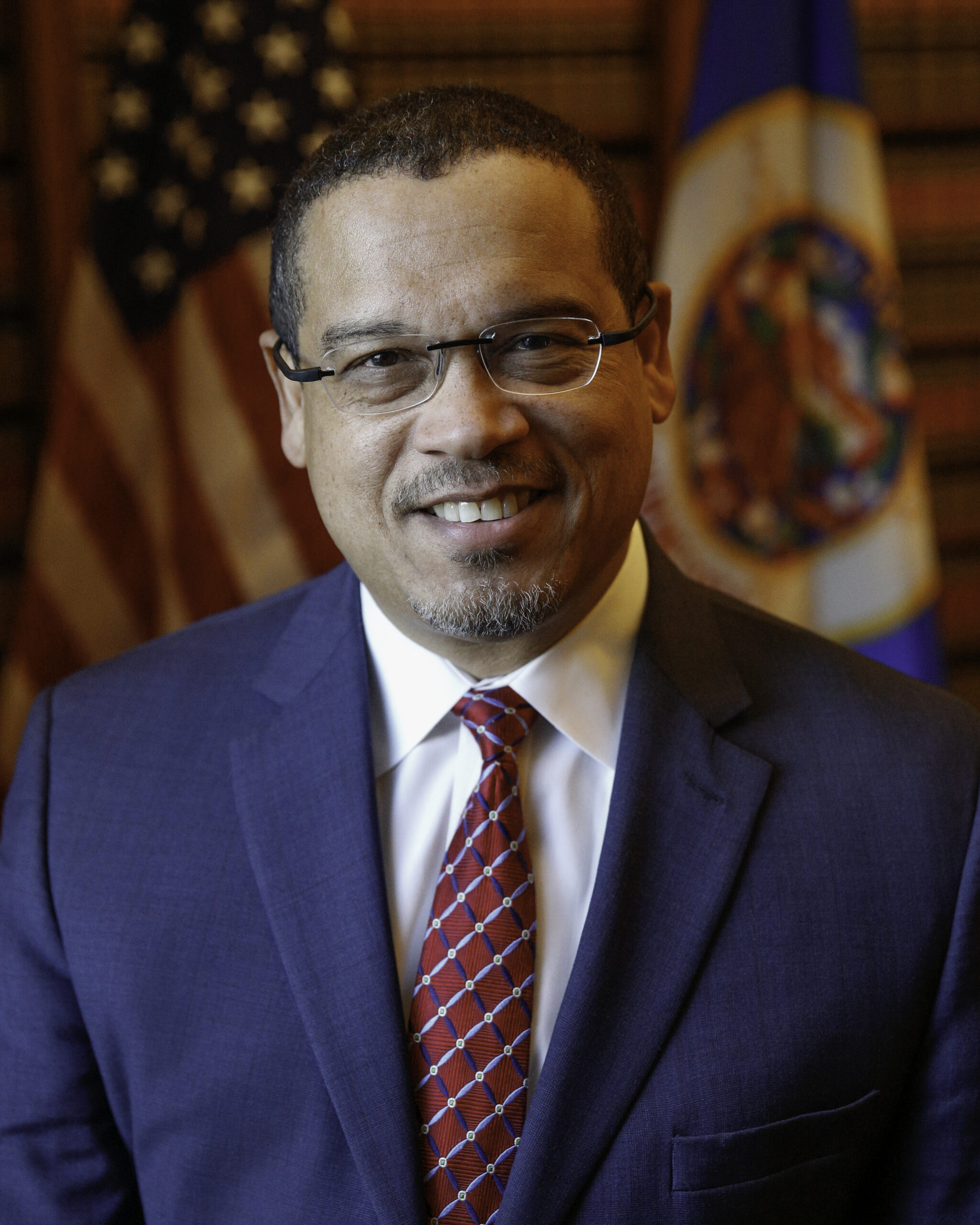
Keith Ellison, Esq.
1984 UW Madison
Keith Ellison was sworn in as Minnesota’s 30th attorney general on January 7, 2019. As the People’s Lawyer, Attorney General Ellison’s job is to help Minnesotans afford their lives and live with dignity, safety, and respect. His guiding values are generosity and inclusion.
From 2007 to 2019, Keith Ellison represented Minnesota’s 5th Congressional District in the U.S. House of Representatives, where he championed consumer, worker, environmental, and civil- and human-rights protections for Minnesotans. He served for 12 years on the House Financial Services Committee, where he helped oversee the financial services industry, the housing industry, and Wall Street, among others. Among his legislative accomplishments are passing provisions to protect credit-card holders from abusive practices and protect the rights of renters and tenants. While in Congress, he founded the Congressional Antitrust Caucus and the Congressional Consumer Justice Caucus. He also served as co-chair of the Congressional Progressive Caucus, which he helped build to more than 100 members.
Before being elected to Congress, Attorney General Ellison served four years in the Minnesota House of Representatives. Prior to entering elective office, he spent 16 years as an attorney specializing in civil-rights and defense law, including five years as executive director of the Legal Rights Center. As the leader of this public-interest law firm, he oversaw a team of attorneys focused on delivering justice for Minnesotans who had nowhere else to turn. He was also a noted community activist.
Attorney General Ellison received his law degree from the University of Minnesota Law School in 1990.
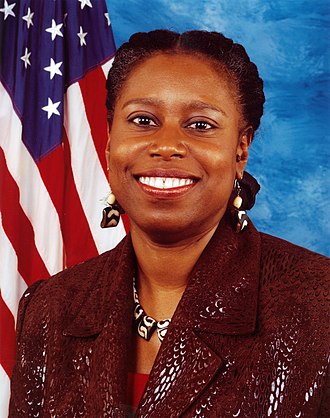
Cynthia McKinney
1984 UW Madison
Cynthia McKinney is an American politician who was a Democratic member of the U.S. House of Representatives (1993–2003, 2005–2007) and was the Green Party nominee for the 2008 U.S. presidential election.
After earning a B.A in international relations from the University of Southern California (1978) and an M.A. in law and diplomacy from Tufts University (1979), Cynthia began her work at the Georgia statehouse in 1988. She served two terms as a state representative, and in 1992 she ran successfully for the U.S. House of Representatives.
During her tenure in Congress, McKinney served on the armed services and international relations committees. In 1995 the U.S. Supreme Court ruled that McKinney’s legislative district violated constitutional prohibitions against gerrymandering. The district was redrawn and she handily won reelection, and she directed her legislative efforts toward such subjects as poverty, racial issues, and the relief of debt in the developing world.
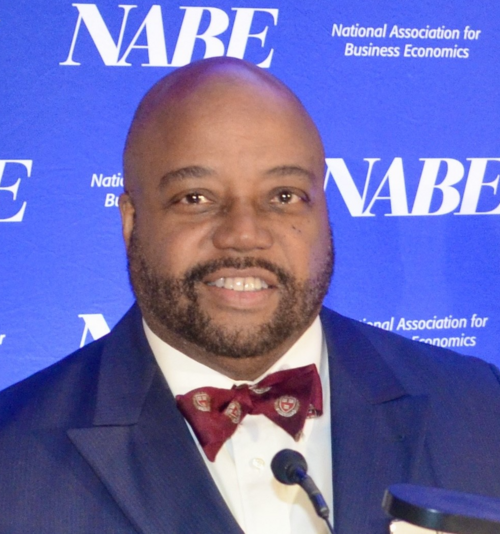
Lavaughn Henry, Ph.D.
1984 UW Madison
serves as a senior policy analyst in the banking and regulatory policy section at the FDIC. He assists in the interpretation, analysis, proposal, and drafting of policy guidelines; existing and proposed statutes and regulations; and studies including the Federal Deposit Insurance Act, FDIC rules and regulations, the National Bank Act, and other relevant depository institution laws. He previously served on special assignment as a senior economist for the Council of Economic Advisors in the Executive Office of the President of the United States. In this role, he was responsible for analyzing banking and other macroeconomic issues and aiding in the writing of the 2020 and 2021 Economic Report of the President. From 2009–2016, he served as vice president and senior regional officer for the Cincinnati branch of the Federal Reserve Bank of Cleveland. Committed to higher education of underserved populations, Henry has served on the board of Regents, advisory boards, and as adjunct faculty to multiple Historically Black Colleges and Universities (HBCUs).

William Rodgers, Ph.D.
1986 Temple
William M. Rodgers III is vice president and director of the Institute for Economic Equity at the Federal Reserve Bank of St. Louis. Before joining the Fed, Rodgers served as professor of public policy and chief economist at the Heldrich Center for Workforce Development at Rutgers University. His areas of expertise include compensation, pay equity, diversity and inclusion, labor market and general economic trends.
Rodgers is an elected member of the National Academy of Social Insurance and served as the Academy’s board chair for the last five years. Rodgers also serves as treasurer for the Institute for Women’s Policy Research. He is a non-resident fellow at The Century Foundation and has served in many public capacities, including on President Obama’s Department of Labor transition team, and as chief economist at the U.S. Department of Labor from 2000 to 2001. He served on the National Economic Association Board and is a past president. Rodgers also served on the U.S. Board of United Way Worldwide and currently works on the Board of Trustees of McDaniel College. He served at the Federal Reserve Bank of Atlanta as a visiting scholar and chairs the National Academies of Sciences, Engineering and Medicine’s expert panel to evaluate the quality of compensation data collected from U.S. employers by the EEOC.
He has published articles in the Journal of Policy Analysis and Management, the Journal of Post Keynesian Economics, the Review of Black Political Economy, and Family Economics and Nutrition Review. His book, The Handbook on the Economics of Discrimination, was selected by Choice, the review journal of the American Library Association, as an Outstanding Academic Book for 2006.
Rodgers has been called upon for articles in The New York Times, The Wall Street Journal, Fortune Magazine, The Washington Post, The Guardian, The Financial Times and many other publications. He has been a guest on numerous television and radio shows, including MSNBC, Yahoo Finance, CNBC, NPR’s Marketplace, Weekend Edition and America Amplified.

Nina Banks, Ph.D.
1988 Temple
Nina Banks is Associate Professor of Economics and an affiliate of Women’s and Gender Studies and Critical Black Studies at Bucknell University. She is a past president of the National Economic Association (NEA) and serves on the Board of Directors of the Economic Policy Institute (EPI). Previously she served on the board of the International Association for Feminist Economics (IAFFE) and the Editorial Boards Feminist Economics and The Review of Black Political Economy. Her research - as discussed in a New York Times profile - makes visible the unseen work of Black and other marginalized women by developing an economics of their unpaid work and community activism against racial and ethnic disparities. Her determination to restore Black women to U.S. economic history led to the recovery of the economic thought of the first Black American economist, Sadie T.M. Alexander.
Professor Banks is the founder and past organizer of the annual Freedom and Justice conference of the National Economic Association (NEA), the American Society of Hispanic Economists (ASHE), and the Association for Economic Research of Indigenous Peoples (AERIP). The social justice conference brings together a small group of scholars who are dedicated to finding solutions to the pressing economic problems facing racialized communities.
In addition to her edited volume, Democracy, Race, and Justice: The Speeches and Writings of Sadie T. M. Alexander (Yale University Press, 2021), Professor Banks has three other books under contract including a biography of Sadie Alexander.

Mark Turner, Ph.D.
1988 Temple
Dr. Mark Turner is the Founder, President, and Principal Associate at Optimal Solutions Group (Optimal), a non-partisan public policy research firm that provides rigorous analysis and technical assistance to government agencies and non-profit organizations. He leads a multi-disciplinary staff of more than 60 employees in designing and implementing research studies and providing technical assistance on a variety of policy relevant topics that span Optimal’s four research centers – education, workforce development, health, housing and economic development. Many of these projects are randomized field trials where Dr. Turner has managed recruitment, large-scale data collection, and technical working groups. He also oversees the design and implementation of large technical assistance projects, including the National Center on Service Obligations.
Prior to founding Optimal, Dr. Turner was a Research Scientist at the Institute for Policy Studies and an Adjunct Assistant Professor in the Department of Economics at Johns Hopkins University. Prior to JHU, he was a Research Associate at the Urban Institute and prior to that worked for the Government Accountability Office. He has authored more than 20 reports and publications, several in peer-reviewed journals.
Dr. Turner earned a B.A. in economics from Michigan State University and a Ph.D. in economics from the University of Maryland.
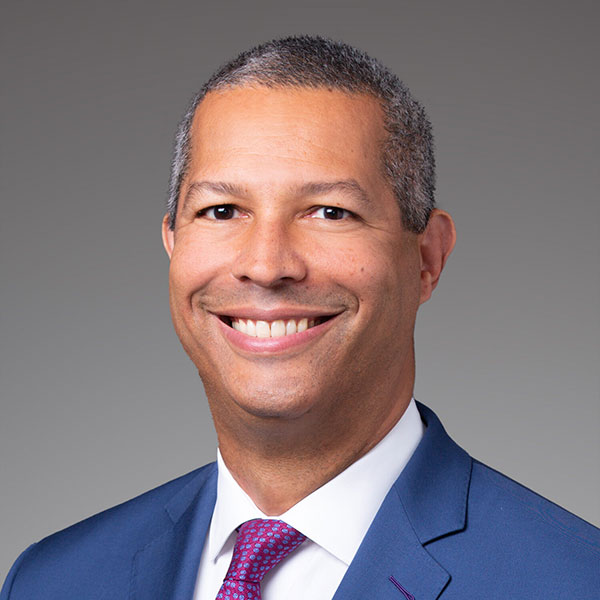
Seth Carpenter, Ph.D.
1990 Temple
Seth Carpenter is a Managing Director and Chief Global Economist at Morgan Stanley. Previously, he was Chief US Economist for UBS and Head of US Research for Rokos Capital. Prior to entering the private sector, Seth had an almost two-decade career in the public sector. During his 15 years at the Federal Reserve, he rose to the position of Deputy Director of the Division of Monetary Affairs, working on monetary policy strategy and implementation. At the US Treasury, he was Deputy Assistant Secretary for Macroeconomic Analysis and then was nominated by President Obama to be Assistant Secretary for Financial Markets. Seth earned his PhD in Economics from Princeton University.
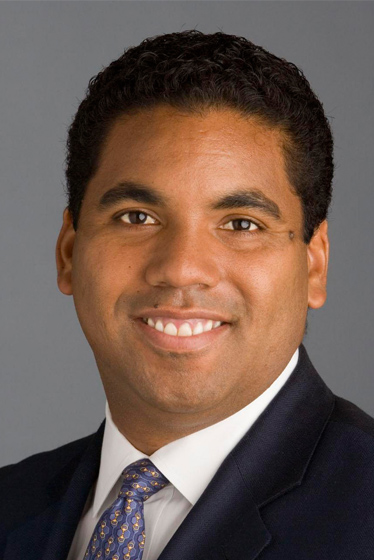
Michael Chen-Young, Ph.D.
1990 Temple
Dr. Michael Chen-Young is the President of AlignIQ, LLC, a consultancy specializing in helping transform the Office of Finance through various business, process, technology and data initiatives. Michael has over 25 years of such experience working with organizations on their continuous improvement, successfully leading multiple initiatives with budgets over $50M.
Prior to AlignIQ, Michael was the Deputy CFO & Treasurer of Prospect Mortgage overseeing the Treasury Operations of this large independent mortgage bank funding over $6 billion in annual mortgage originations. Prior to Prospect Mortgage, Michael has held multiple Fannie Mae Vice President positions over areas such as Strategic Analytics, Finance Transformation, and FP&A.
Michael’s educational background includes Masters & PhD degrees in Economics from the University of Maryland, and a Bachelor degree, double majoring in Mathematics & Economics, from the College of William & Mary.
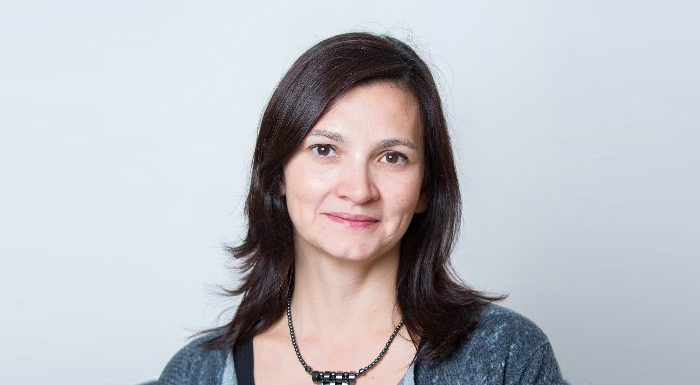
Janine Berg, Ph.D.
1991 Stanford
Dr. Janine Berg is a Senior Economist and she received her Ph.D. from the New School for Social Research in New York, USA. Since 2002 she works at Inclusive Labour Markets, Labour Relations and Working Conditions Branch (INWORK) of the International Labour Organization (ILO).
She has conducted research on the economic effects of labour laws as well as provided technical assistance to ILO constituents on policies for generating jobs and improving working conditions. From 2008 to 2011, Janine worked at the ILO office in Brazil as an employment specialist. She is the author of several books and numerous articles on employment and labour market institutions. Her latest book, Labour Markets, Institutions and Inequality: Building Just Societies in the 21st Century, was published in February 2015. Janine Berg is co-author of the recently published report entitled Non-standard employment around the world: Understanding challenges, shaping prospects.
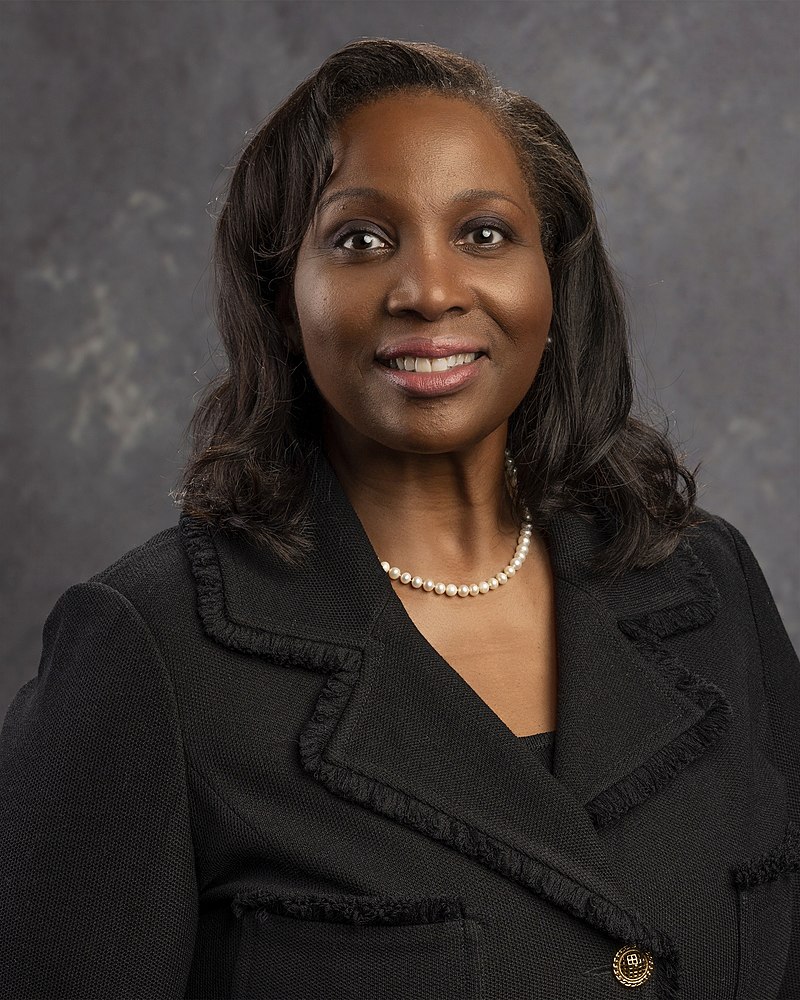
Lisa Cook, Ph.D.
1991 Stanford
Lisa D. Cook took office as a member of the Board of Governors of the Federal Reserve System on May 23, 2022, to fill an unexpired term ending January 31, 2024. She was reappointed to the Board on September 8, 2023, and sworn in on September 13, 2023, for a term ending January 31, 2038.
Prior to her appointment to the Board, Dr. Cook was a professor of economics and international relations at Michigan State University. From 2018 to 2021, she was director of the American Economic Association Summer Training Program. She was also a research associate at the National Bureau of Economic Research.
Previously, Dr. Cook was on the faculty of Harvard University's Kennedy School of Government. During her time at Harvard, Dr. Cook also served as deputy director for Africa Research at the Center for International Development. Before then, she was a National Fellow at Stanford University.
From 2011 to 2012, Dr. Cook served as a senior economist on the Council of Economic Advisers under President Barack Obama. From 2000 to 2001, she served as a senior adviser on finance and development in the U.S. Department of Treasury's Office of International Affairs.
Dr. Cook received a BA in philosophy from Spelman College. As a Marshall Scholar, she received a second BA in philosophy, politics, and economics from Oxford University. She earned a PhD in economics from the University of California, Berkeley.
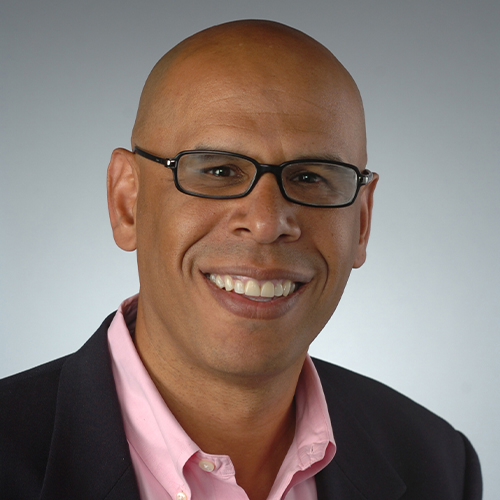
William Horrace, Ph.D.
1991 Stanford
Bill Horrace is a Distinguished Professor of Economics, a research affiliate in the Center for Policy Research and a W.E.B. Du Bois Scholar at the National Institutes of Justice. His research interests include econometrics, production and efficiency analysis; peer-effects and strategic interactions; and crime and policing. He is an expert in the study of police racial profiling, having completed several studies of the issue in the City of Syracuse, New York, over the last decade.
Horrace has served on the editorial boards of the Journal of Business and Economic Statistics, the Journal of Productivity Analysis and the Southern Economic Journal. He is an inaugural member of the Society of Senior Ford Fellows and a principal founder of the International Society for Efficiency and Productivity Analysis. He has received over $5 million in sponsored project grants at Syracuse University. He received a Ph.D. in economics from Michigan State University in 1996.
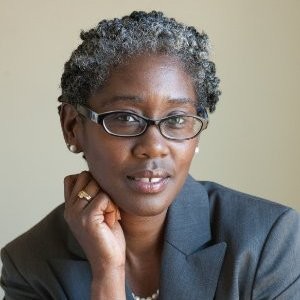
Valija Rose, Ph.D.
1991 Stanford
Currently serve as the principal data, research, and functional and technical analyst for the Family Advocacy Program (FAP). Evaluate and analyze a broad range of data, research, programs, and metrics addressing the needs and challenges of Service members and their families with respect to family violence. Research and analyze data for policy alignment, development, and revisions to improve family readiness, resiliency, and well-being.
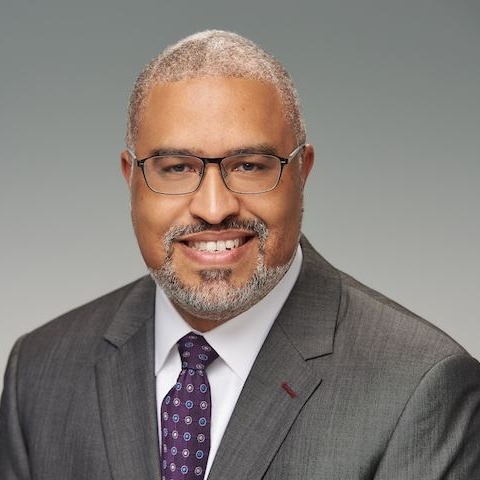
Harvey Westbrook Jr., Ph.D.
1991 Stanford
Dr. Harvey Westbrook has retired as the Assistant Director, Office of Research and Data Services Division of Economic and Risk Analysis @ Securities and Exchange Commission (SEC). Dr. Westbrook has presented at numerous conferences and specializes in information/market efficiency, market microstructure, portfolio choice, investment decisions, mutual funds, hedge funds, applied econometrics, and quantitative risk assessment. He is interested in helping MBU minority students overcome obstacles with technology training, minority student networks, and general support/outreach.
Dr. Westbrook received his Bachelor of arts in economics and managerial studies in 1992 from Rice University. He received his Master of Science in Economics in 1994, his Master of Science in Applied Statistics in 1997, and his Ph.D. in Economics in 2002 from the University of Illinois at Urbana-Champaign.

Matias Barenstien, Ph.D.
1992 Stanford
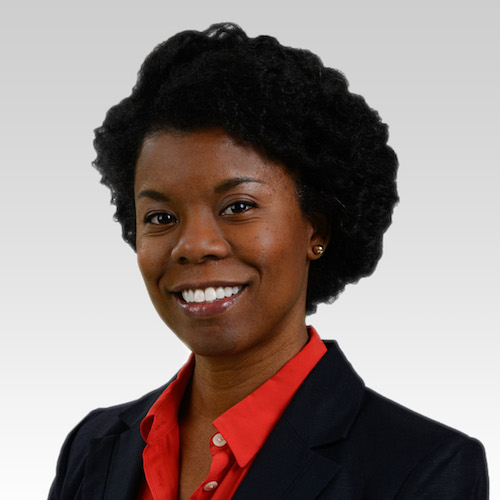
Tamah Morant, Ph.D.
1992 Stanford
Tamah Morant joined Poole College of Management in 1999 and is currently a teaching professor of economics, a role she is returning to after four years as the associate dean of undergraduate programs. As associate dean, Morant provided leadership to the student service units, which support the academic, personal and professional development for the college’s 3,100-plus undergraduate students.
Prior to her start as associate dean in 2016, she was director of the economics graduate program, which Poole College’s Department of Economics offers jointly with the Department of Agricultural and Resource Economics in NC State’s College of Agriculture and Life Sciences.
Morant received her Master of Science and doctoral degrees in economics from the University of North Carolina at Chapel Hill.
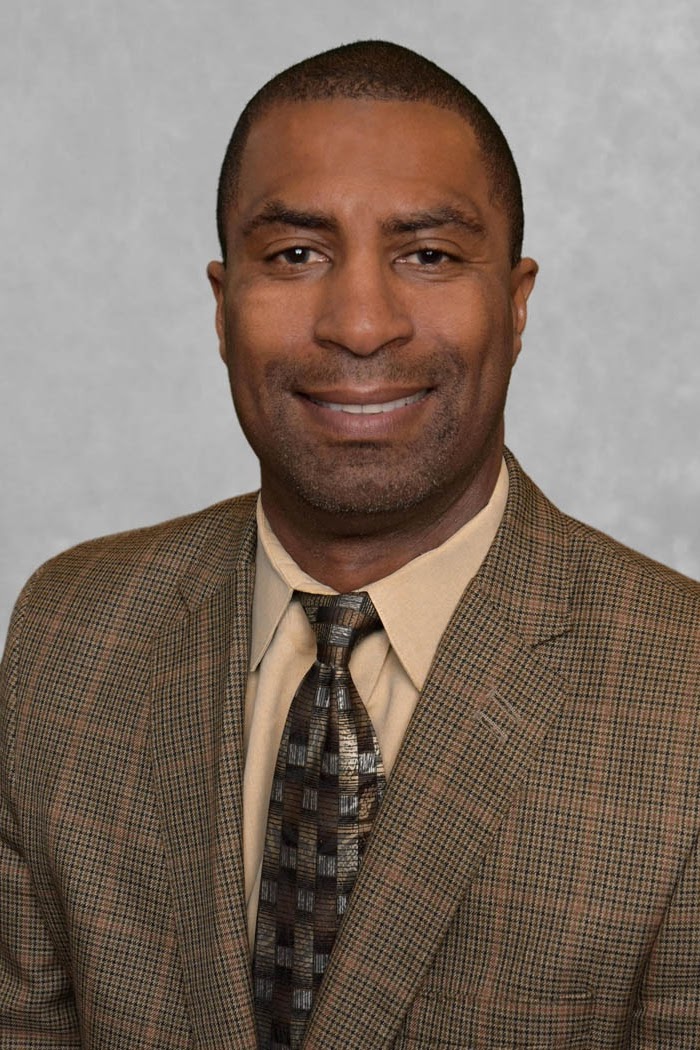
Gary Hoover, Ph.D.
1992 Stanford
Gary Hoover is the Executive Director of The Murphy Institute and Professor of Economics at Tulane University. His research focuses on the intersection of economics, race, and public policy. Since 2012, he has served as co-chair of the American Economic Association Committee on the Status of Minority Groups in the Economics Profession. He is also the current and founding editor of the Journal of Economics, Race and Policy, past Vice-President of the Southern Economic Association, and a fellow of CESifo Group Munich. Previously, he was appointed a President's Associates Presidential Professor at the University of Oklahoma and chair of the university's Department of Economics. Prior to that, he was the William White McDonald Family Distinguished Faculty Fellow at the University of Alabama and Assistant Dean for Faculty and Graduate Student Development in the Culverhouse College of Business Administration.
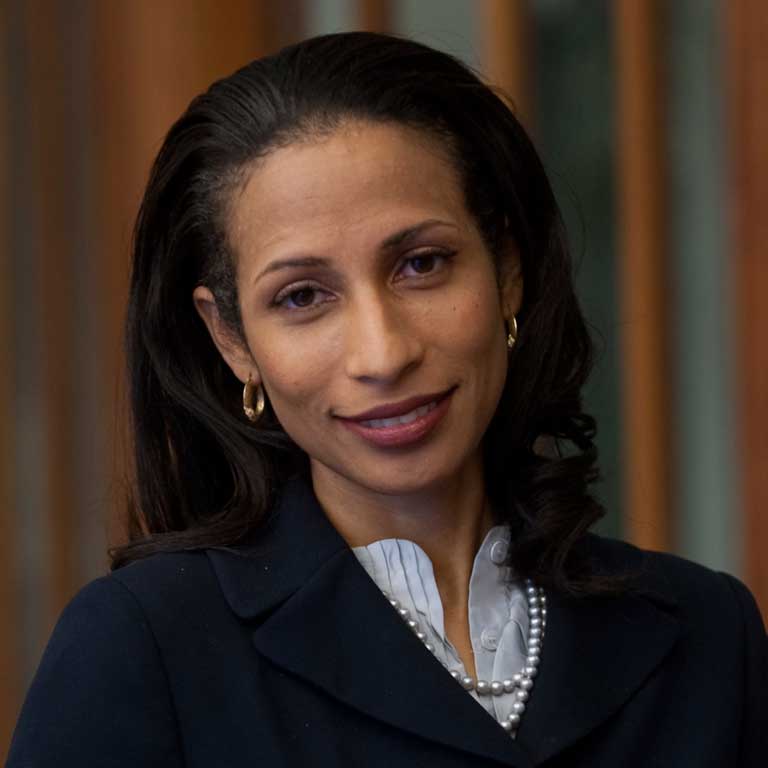
Una Okonkwo, Ph.D.
1993 Stanford
A global expert on philanthropy and social innovation, Dr. Una Osili has more than two decades of experience in leadership, economic policy and research across the public and private sectors. She holds the Efroymson Chair in Philanthropy and she serves as the associate dean for research and international programs and Dean’s Fellow for the Mays Family Institute on Diverse Philanthropy at Indiana University Lilly Family School of Philanthropy, the world’s first school on philanthropy.
At the school she leads the research and publication of the Global Philanthropy Environment Index and the Global Philanthropy Tracker, as well as the research and publication of Giving USA, the annual report on American philanthropy published by Giving USA Foundation. Dr. Osili is the founder of Generosity for Life, a digital platform that provides new data tools in the area of philanthropy and social impact.
An internationally recognized expert on philanthropy, economics and international development, Osili recently testified before the Joint Economic Committee of the United States Congress on supporting charitable giving during the COVID-19 crisis, as well as before a subcommittee of the U.S. Senate Committee on Foreign Relations.
Osili has served as a member of several national and international advisory groups, including the African Development Bank, Social Science Research Council, the United Nations Economic Commission for Africa and the United Nations Development Program. She has been an associate editor for the Journal of African Economies and guest editor of the Journal of African Development.
Osili received her bachelor’s degree in economics from Harvard University and her master’s and Ph.D. from Northwestern University.

Lawshawn Richburg-Hayes, Ph.D.
1994 Stanford
Lashawn Richburg-Hayes is vice president of education at Insight Policy Research. Previously she led MDRC’s work in higher education, principally focused on finding ways to increase academic achievement and persistence among low-income students attending community colleges and less selective four-year universities. Projects in the higher education portfolio included evaluations of curricular reforms of developmental education, enhanced student services, scholarship programs, and alternative disbursement timing for financial aid at colleges across the United States.
She was co-principal investigator of the Institute for Education Sciences Center for the Analysis of Postsecondary Readiness (with Tom Bailey of the Community College Research Center). She was the project director and co-principal investigator of the Behavioral Interventions to Advance Self-Sufficiency project and a co-principal investigator of the Behavioral Interventions in Child Support Services, both sponsored by the Administration for Families and Children of the U.S. Department of Health and Human Services.
Richburg-Hayes earned a BS from the Industrial and Labor Relations School of Cornell University. She received her PhD in economics from Princeton University.
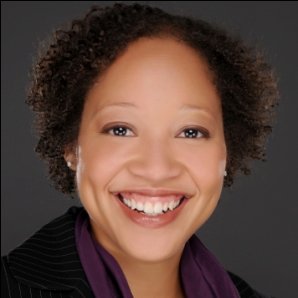
Noshua Watson, Ph.D.
1994 Stanford
Dr Noshua Watson is the founder of Interwoven Impact, a social impact analytics consultancy for content companies. Interwoven helps companies measure how their marketing, media, educational or research content creates social change. Noshua was previously a co-founder of Ethically Woven, which produced sustainable fashion events and education for major trade shows, festivals and conferences.
Due to her background in sustainable development, consulting and technology, she is a popular speaker on business and society and social entrepreneurship. As an innovator in measuring the social impact of business, Noshua has worked with clients that include the United Nations, Rockefeller Foundation, Unilever, UK Department for International Development, Inter-American Development Bank and PwC. She holds a PhD in Strategy from INSEAD specializing in Corporate Social Responsibility and a masters in Economics from Stanford University.
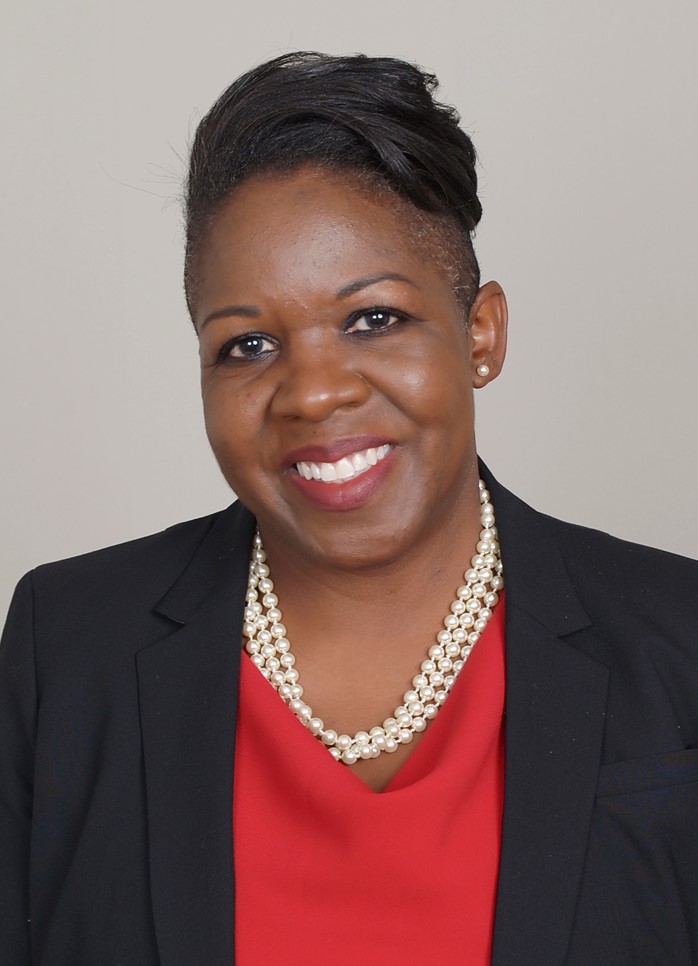
Raymonda Burgman, Ph.D.
1994 Stanford
Ray Burgman Gallegos began serving as the Vice President, Programs and Services in October 2021. In this role, she increases student access to high-quality postsecondary education and fosters collaborations between institutions.
Previously, Burgman served as director of programs and research at HERS (Higher Education Resource Services), a non-profit leadership development organization focused on women who work in postsecondary settings, for eight years. She also served as an administrator at DePauw University, located in Greencastle, IN, in Academic Affairs and the Office of the President and at New College of Florida, located in Sarasota, FL. Burgman was also a tenured professor in economics and management at DePauw University. She also taught at two other institutions in Florida, Santa Fe College and the University of South Florida-St. Peterburg. She received a B.A. in Economics from New College of Florida and an M.A. and Ph.D. in Economics from the University of Florida, located in Gainesville, FL.

Michael Villareal, Ph.D.
1995 Stanford
Michael U. Villarreal is an American state politician who served as a member of the Texas House of Representatives from a district centered in north central San Antonio. Villarreal served as Chair of the House Committee on Investments and Financial Services and was a member of the House Committee on Public Education. A Democrat who served eight terms, Villarreal previously worked for San Antonio's SAMCO Capitol Markets, specializing in municipal finance.
Villarrea is a graduate of Central Catholic High School in San Antonio, Texas. He holds an undergraduate economics degree from Texas A&M University and later studied economics at Massachusetts Institute of Technology and Harvard University. He holds a Masters of Public Policy from Harvard Kennedy School. He has a Doctor of Philosophy in public affairs at the Lyndon B. Johnson School of Public Affairs.
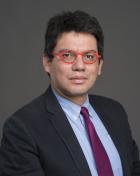
Carlos Arteta, Ph.D.
1996 Austin
Carlos Arteta is the Manager of the World Bank’s Prospects Group, where he heads the work program on global macroeconomic surveillance and serves as lead author of the Global Economic Prospects Report. Previously, he served as Principal Economist in the International Finance Division of the Federal Reserve Board and as Deputy Chief International Economist at the U.S. Treasury. His work experience includes research and policy work on international macroeconomics, on a wide range of topics including monetary policy, financial crises, financial dollarization, exchange rates, international banking, and sovereign debt. His research has been published in numerous refereed journals and policy outlets. He also has extensive experience in surveillance and analysis of macro-financial issues in the Euro Area, Emerging Europe, Latin America, and China. Mr. Arteta holds a Ph.D. in Economics from the University of California at Berkeley.
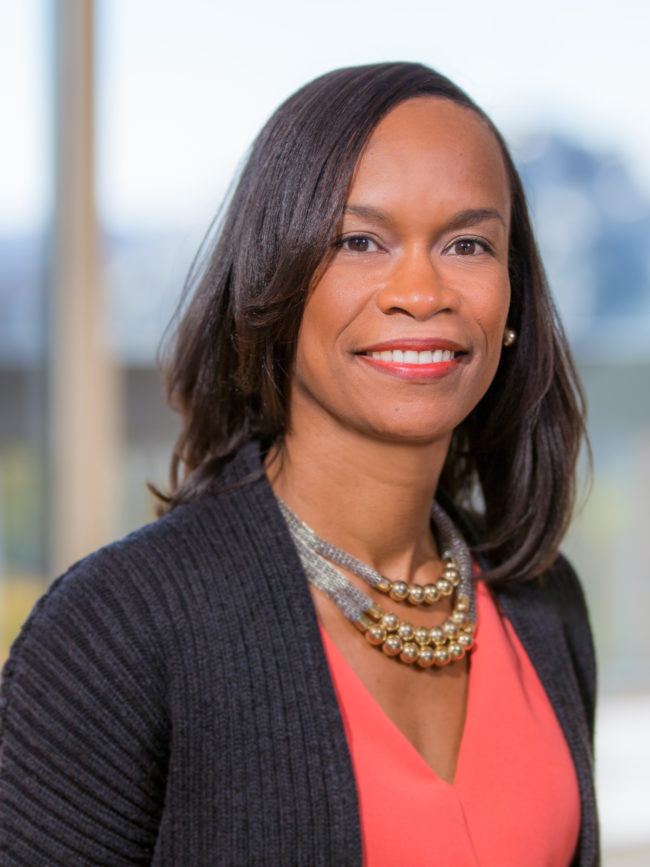
Valerie Wilson, Ph.D.
1996 Austin
Valerie Rawlston Wilson (she/her) is a labor economist and Director of the Economic Policy Institute’s Program on Race, Ethnicity, and the Economy (PREE), a nationally recognized source for expert reports and policy analyses on the economic condition of America’s people of color. As PREE Director, Wilson has worked to elevate EPI’s thought leadership on issues of racial and economic justice and expand PREE’s capacity to prescribe policy solutions that center racial equity. Prior to joining EPI, Wilson served as Vice President of Research at the National Urban League, where she played a pivotal role in the production of the organization’s annual signature publication, The State of Black America, and assisting the historic civil rights organization in shaping its national economic policy. In 2022, she was President of the National Economics Association, an organization founded to promote the professional lives of black economists while expanding knowledge of economic issues of particular interest to communities of color. In 2023, she was elected to become a fellow of the National Academy of Public Administration.
Throughout her career, Wilson has written extensively on various issues impacting racial economic inequality in the United States—including employment, wage, income and wealth disparities—and has also appeared in major print, television, and radio media. Wilson has testified before Congress on racial disparities in unemployment and earnings and was keynote speaker for the regional Federal Reserve Banks’ series on Racism and the Economy: Focus on Employment. She has twice served on National Academies panels charged with proposing ways to improve the EEOC’s ability to measure and collect pay information from U.S. employers in support of the agency’s responsibility to investigate charges of pay discrimination. In 2010, through the State Department’s Bureau of International Information Programs, she was selected to deliver the keynote address at an event on Minority Economic Empowerment at the Nobel Peace Center in Oslo, Norway. She received a Ph.D. in Economics from the University of North Carolina at Chapel Hill.
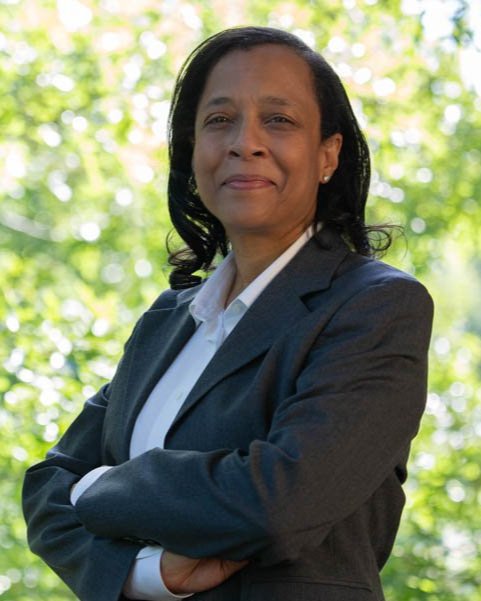
Vicki Bogan, Ph.D.
1996 Austin
Vicki Bogan is a Professor of Public Policy at Duke University and a Research Associate at the National Bureau of Economic Research (NBER) . Her research interests are in the areas of financial economics, household finance, inequality, behavioral finance, and applied microeconomics centering on issues involving financial decision making behavior and financial markets. She explores questions relating to financial decision-making and household portfolio allocation with the goals of shedding light on how to better model observed behavior and helping to shape policy.
Her research has been published in leading economics and finance journals.
She has had the honor of testifying before the U.S. House Committee on Financial Services on the gamification of finance, and has served as the Chair of the Academic Research Council for the Consumer Financial Protection Bureau. She was the founder and previous director of Cornell University’s Institute for Behavioral and Household Finance. She was a founding Co-Editor of Financial Planning Review. Additionally, she has worked as a consultant for several financial institutions including Hartford Funds Management Group, Inc. and Brighthouse Financial, Inc.
She teaches economics courses at the Sanford School of Public Policy at Duke University. Previously, she taught finance courses for master's and undergraduate students in Cornell University's SC Johnson College of Business. She have received two outstanding educator awards and the SUNY Chancellor's Award for Excellence in Teaching. She hold a Sc.B. degree in Applied Mathematics and Economics from Brown University, an M.B.A. in Finance and Strategic Management from the Wharton School of the University of Pennsylvania, an M.A. in Economics from Brown University, and a Ph.D. in Economics from Brown University. She also has held visiting fellow appointments at Princeton University and Yale University.
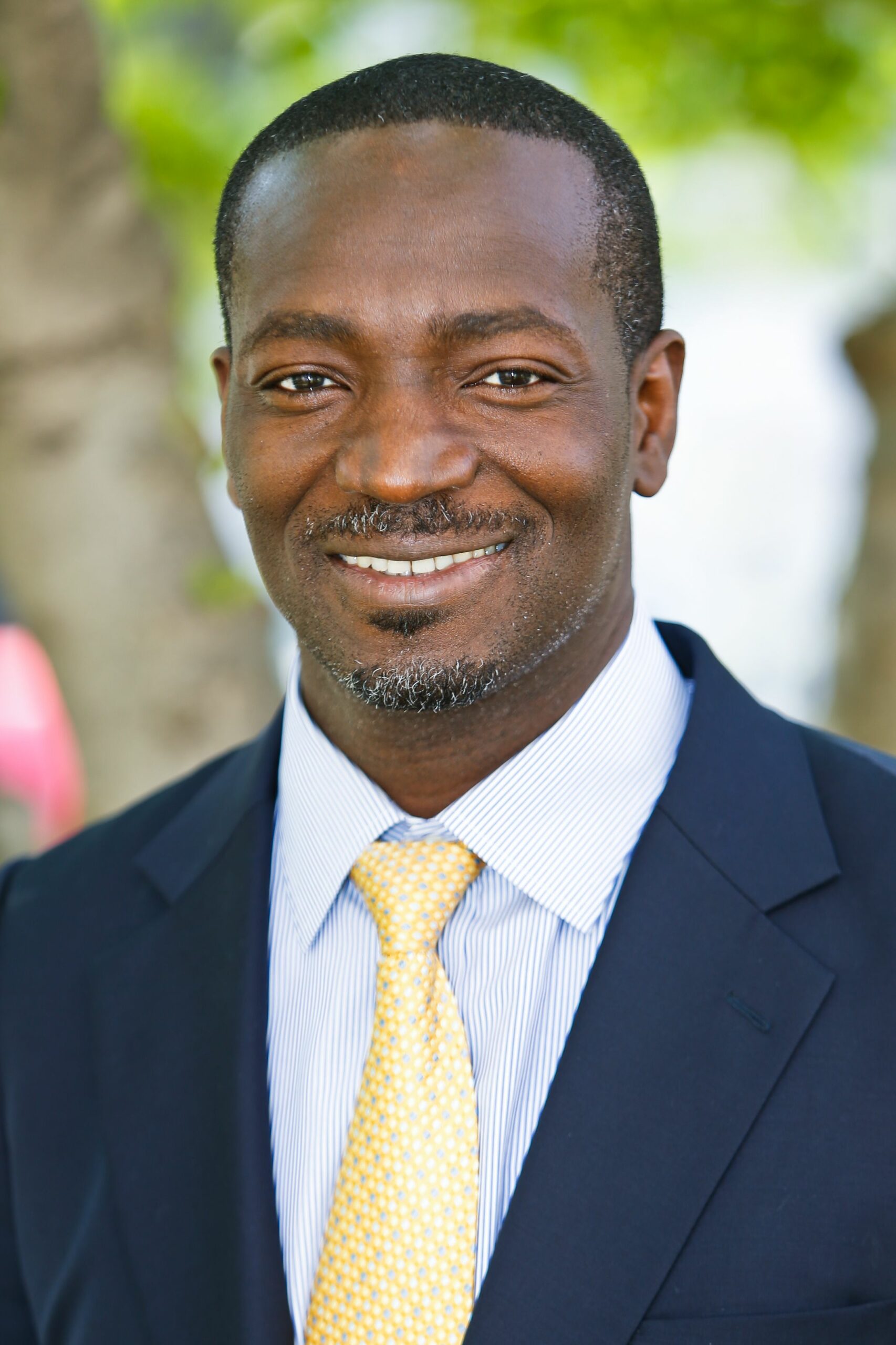
Brahima Coulibaly, Ph.D.
1996 Austin
Brahima Sangafowa Coulibaly is vice president and director of the Global Economy and Development program at Brookings and the Edward M. Bernstein Scholar, after previously serving as director of the program’s Africa Growth Initiative. He joined Brookings in April 2017 after nearly a decade and half at the Board of Governors of the Federal Reserve System where he was most recently chief economist and head of the emerging market and developing economies group. In that capacity, he oversaw the institution’s work on emerging markets and developing economies, provided intellectual leadership on economic and financial issues facing these economies, and often represented the Federal Reserve in international meetings and working groups on relevant topics.
Coulibaly has also taught economics and international finance at Georgetown University, the Darden Graduate School of Business at the University of Virginia, and the University of Michigan. He has published widely in top-tier academic journals on various topics in international finance, macroeconomics, economic development, monetary economics, and trade. He speaks regularly to the national and international media on these issues. His research has featured in numerous prominent media outlets, including the Wall Street Journal, the Financial Times, Project Syndicate, and the New York Times.
Coulibaly holds a doctoral and master’s degree in economics, both from the University of Michigan, and a bachelor’s degree in statistics from the University of California, Berkeley.
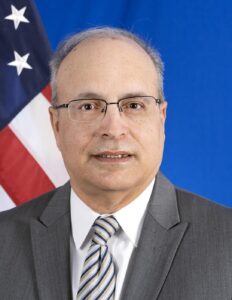
Francisco Mora, Ph.D.
1996 Austin
Frank Mora, Ph.D., was sworn in as U.S. Ambassador to the Organization of American States on December 30, 2022. Prior to his current position, he was Professor of Politics and International Relations and Senior Researcher at the Jack D. Gordon Institute for Public Policy at Florida International University (FIU). From 2013 to 2020, Ambassador Mora served as Director of the Kimberly Green Latin American and Caribbean Center at FIU. Prior to arriving at FIU, he served as Deputy Assistant Secretary of Defense for the Western Hemisphere from 2009–2013.
He has held several teaching positions, including Professor of National Security Strategy and Latin American Studies at the National War College, National Defense University (2004–2009), and Associate Professor and Chair in the Department of International Studies, Rhodes College (2000–2004).
During the last twenty years Ambassador Mora worked as a consultant to the Library of Congress, the Institute for National Security Studies (INSS), the National Democratic Institute, the U.S. State Department, the Organization of American States, and U.S. Southern Command.
Ambassador Mora is the author or editor of five books, including Neighborly Adversaries: U.S.-Latin American Relations (2015); Paraguay and the United States: Distant Allies (2008) and Latin American and Caribbean Foreign Policy (2003); and over thirty academic and policy articles, book chapters, and monographs on hemispheric security, U.S.-Latin American relations, civil-military relations, Cuban politics and the military, and Latin American political economy and integration.
Ambassador Mora received his Ph.D. in International Affairs and an M.A. in Inter-American Studies from the University of Miami. He earned his B.A. in International Affairs from The George Washington University. He also completed studies at universities in Peru and Costa Rica. Ambassador Mora is a recipient of the Office of the Secretary of Defense Medal for Exceptional Public Service, Department of Defense (2012). In 2022, he was confirmed by the Senate as the Permanent Representative of the United States to the Organization of American States, with the rank of Ambassador

Jose Signoret, Ph.D.
1996 Austin
José Signoret in an economist in the Global Trade and Regional Integration unit in the Macro, Trade, and Investment Global Practice of the World Bank. His recent research topics include: non-tariff measures, analysis of preferential trade agreements, and firm-level trade analysis. Before joining the World Bank, he worked in the Research Division at the U.S. International Trade Commission, where he led several research projects, including the recent report on the TPP agreement. He also served as Director for Trade Capacity Building at the Office of the U.S. Trade Representative during 2007–2008, focusing on TCB efforts in Latin America. He holds a Ph.D. from Berkeley and a master’s degree from Michigan.
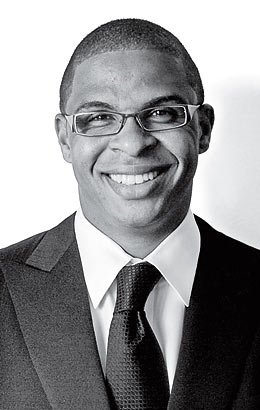
Roland Fryer, Ph.D.
1998 Austin
Roland G. Fryer, Jr. is a Professor of Economics at Harvard University. Fryer's research combines economic theory, empirical evidence, and randomized experiments to help design more effective government policies. His work on education, inequality, and race has been widely cited in media outlets and Congressional testimony.
Professor Fryer was awarded a MacArthur "Genius" Fellowship and the John Bates Clark Medal -- given by the American Economic Association to the best American Economist under age 40. Among other honors, he is a fellow of the American Academy of Arts and Sciences and a recipient of the Calvó-Armengol Prize and the Presidential Early Career Award for Scientists and Engineers. At age 30, he became the youngest African-American to receive tenure at Harvard.
His current research focuses on education reform, social interactions, and police use of force.
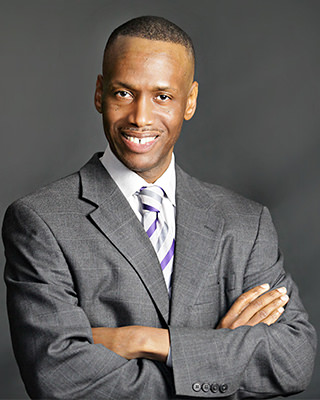
Gavin Samms, Ph.D.
1998 Austin
Gavin Samms, Ph.D. is the founder of Genesis Innovation Academy and serves as Head of Schools. He has spent almost 30 years successfully raising the performance of students at every level of education. From 2010 to 2014, Dr. Samms served as the founding Principal of Fulton Leadership Academy, an all-boys charter school in South Fulton.
Dr. Samms was part of the founding leadership team of Harvard’s Education Innovation Laboratory (EdLabs). While there, he managed large scale educational interventions in partnership with urban school districts, including Chicago, New York City, Houston, and Washington D.C. During his tenure, Dr. Samms also trained and coached principals on successful school turnaround strategies.
He also served as the Managing Partner for Georgia Tech’s OMED: Educational Services unit, where his team’s nationally recognized efforts led to the closing of the achievement gap between black and white students and helped Georgia Tech become the top producer of African American engineers in the country.
Dr. Samms has a PhD in Public Policy from Harvard University, with concentrations in Economics and Education Policy, as well as Bachelor’s and Master’s degrees in Industrial and Systems Engineering from the Georgia Institute of Technology.

R. J. Briggs, Ph.D.
2000 Austin
R. J. Briggs is an economist at RAND. His research focuses on insurance markets, catastrophic risk and public policy, and long-term environmental risks. Briggs has worked on a diverse array of RAND projects, from modeling the returns of education to measuring the efficacy of U.S. Naval communications networks. Most recently, he investigated the options for the Department of Defense's disposal of PFAS-impacted wastes, the use of insurance pricing information for resilience investment valuation at Army installations, and the need for federal (re-) insurance policy to address catastrophic cyber risks.
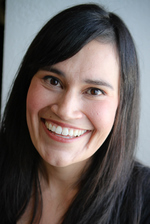
Francisca M. Antman, Ph.D.
2000 Austin
Francisca Antman is Professor in the Department of Economics at the University of Colorado Boulder, Associate Dean of Faculty Success in the College of Arts and Sciences, faculty affiliate in the Population Program at the CU Population Center, and Research Fellow at the Institute for the Study of Labor (IZA). She earned her Ph.D. in Economics from Stanford University in 2007, M.A. from Stanford in 2005, and B.A. in Economics from Harvard University in 2001. She is a development and labor economist with special interests in international migration and human capital investments as well as the allocation of resources within households and families. Other recent projects explore the construction of race and ethnic identity as well as economic development in historical perspective. From 2012 to 2017, she served on the American Economic Association Committee on the Status of Minority Groups in the Economics Profession (AEA CSMGEP). She is currently serving on the American Economic Association Committee on the Status of Women in the Economics Profession (AEA CSWEP), as the Co-Director of the AEA CSMGEP Mentoring Program, and served as the Chair of the Scholarship and Awards Committee for the American Society of Hispanic Economists (ASHE) from 2020-2022. She was recently elected to be President-Elect of the American Society of Hispanic Economists (ASHE) and will serve as President of ASHE in 2024. She was on leave at the University of Carlos III (Madrid, Spain) during the 2022-23 academic year.
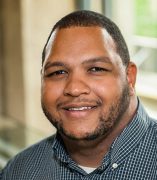
Marcus Casey, Ph.D.
2001 U.C. Denver
An Associate Professor in the Dept. of Economics at the University of Illinois at Chicago where I serve as the Director of Undergraduate Studies. I am also a Nonresident Fellow in Economic Studies and a scholar affiliate of the Future of Middle Class Initiative at the Brookings Institution. I was previously appointed as an inaugural David M. Rubenstein Fellow at Brookings from 2018 - 2020.
My research lies at the intersection of urban, labor, and public economics. My published and ongoing work focuses on sorting and neighborhood change dynamics; neighborhood amenities; spatial and intergenerational aspects of inequality; technology and local labor market dynamics; and education policy.
Please visit my Research page to learn more.
Policy-oriented writing on the future of work, automation, labor markets, education and credentialing, and other related economic issues can be found here or at the Brookings Institution webpage here.
I teach courses in Applied Microeconomics and Econometrics

Larhonda Ealey, Ph.D.
2001 U.C. Denver
A native of Natchez, Mississippi, Dr. LaRhonda Ealey holds a PhD in Economics from Syracuse University and has taught as an Assistant Professor of Economics at Onondaga Community College.
Before working at OCC, LaRhonda served as the Associate Director of Jubilee Homes of Syracuse Inc. a housing and community development organization in Syracuse. At Jubilee Homes, she was responsible for the development and implementation of activities and programs that advanced the mission of the organization, assisted with the supervision of agency fiscal operations, and was responsible for the organization’s grant preparation and fund raising activities. While at Jubilee Homes, Dr. Ealey also spearheaded the development of the community’s sustainable and organic food initiative. In 2006, she was honored by World Hunger Year as a result of her efforts.
She has extensive experience in community and economic development, but finds teaching most rewarding because it challenges her to convey what is considered challenging and often intimidating subject matter in a way that is interesting and relative to students who are not initially engaged. Furthermore, throughout her teaching experiences, she has continued to receive excellent evaluations and acknowledgments from students and colleagues.
Dr. Ealey also has extensive experience working with youth. She serves as a mentor to young African American and Latino women in Syracuse through her roles as the Director of Youth Ministries at The Promise Land Church and as one of the founding and current Board members of The Image Initiative, Inc. a Syracuse non-profit organization dedicated to the empowerment of young women of color.
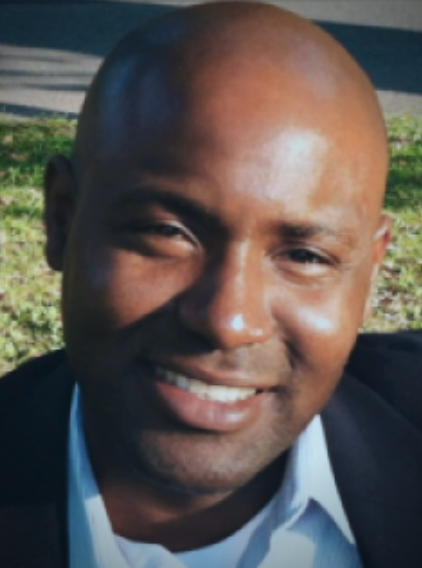
Tod Hamilton, Ph.D.
2001 U.C. Denver
Tod G. Hamilton is a Professor in the Department of Sociology and a Faculty Associate of the Office of Population Research. His research interests are in the field of demography, with an emphasis on immigration and health. His current research evaluates the relative importance of culture and selective migration in explaining differential patterns of stratification between U.S.-born and foreign-born individuals in the United States. Hamilton also explores the degree of health selection among contemporary immigrants to the United States as well as the role that social, economic, and health conditions in immigrants’ countries of origin play in explaining variation in their post-migration health in the United States.
His current work investigates how these demographic changes impact racial disparities in health and labor market outcomes among individuals who reside in the United States. He's currently involved in two strands of research. The first evaluates the factors that generate labor market differences between black immigrants and black natives. The second strand of research explores the degree of health selection among black immigrants as well as the role that conditions in black immigrants’ countries of origin play in explaining variation in their post-migration health in the United States.
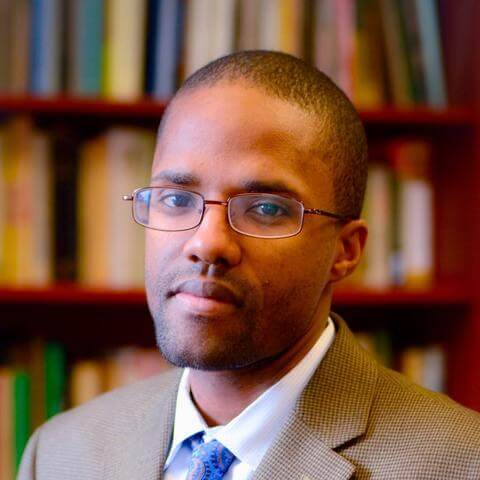
Omari H. Swinton, Ph.D.
2001 U.C. Denver
Dr. Omari H. Swinton is a professor in the Economics department at Howard University where he teaches introductory, intermediate, and urban economics. He is currently the Director of Graduate Studies and Chair. His research interests include labor economics and education. He has papers examining the teenage labor market, the benefits from attending HBCU's, and the returns to a college education. He coauthored a report for NAFEO entitled "The State of Blacks in Higher Education.”
He currently is working on projects that examine the returns to effort for students, the obstacles to faculty diversity in higher education, and benefits of attending an HBCU.
He is the director of the AEA Summer Training Program and Scholarship Program which has increased diversity in the field of economics by preparing talented undergraduates for doctoral programs in economics and related disciplines. He earned his B.S. from Florida A & M University in 2001, and his doctoral degree from Duke University in 2007.
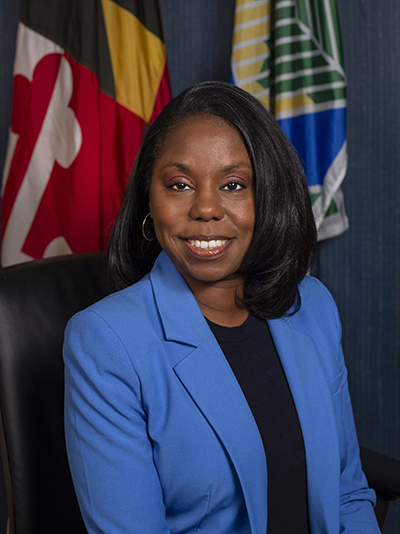
Talisha Searcy
2001 U.C. Denver
Originally from Atlanta, Georgia, Talisha Searcy moved to Takoma Park in 2013. Talisha is passionate about civic engagement. She served as the President of the New Hampshire Gardens Community Association from 2015 to 2017. While in this role, Talisha secured grant funding for community engagement activities including block parties and commissioned a neighborhood entrance sign. “As the former President of the New Hampshire Gardens Community Association, I learned that it takes residents and city staff working together to get things done. I look forward to listening and learning from all Takoma Park residents about what you would like to see in our community”.
Additionally, Talisha Searcy works for the U.S. Department of Health and Human Services as the Director of Research and Evaluation for the Office of the National Coordinator for Health Information Technology. She earned her undergraduate degree in Economics from Georgia State University and Master’s degrees in Economics and Public Administration from the Syracuse University.
She currently serves as Mayor of the city of Takoma Park.
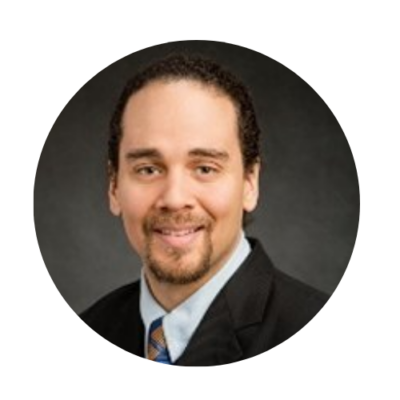
Steve Culpepper, Ph.D.
2001 U.C. Denver
Steven Andrew Culpepper is a Professor in the Department of Statistics at the University of Illinois at Urbana-Champaign. His research focuses on understanding complex data patterns, especially in areas like educational testing and psychological assessment. He earned his BS in Economics from Bowling Green State University in 2001 and completed his PhD in Educational Psychology at the University of Minnesota in 2006. Culpepper’s expertise lies in multivariate categorical data, latent class models, longitudinal latent structure models, and large-scale testing and assessment.
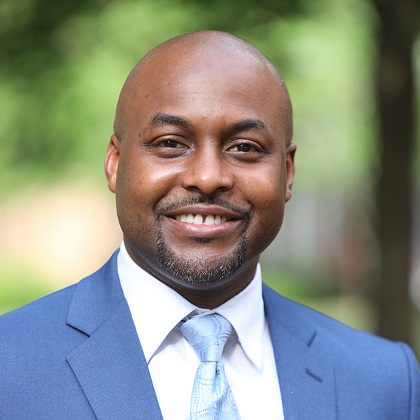
Nicholas Hill, Ph.D.
2001 U.C. Denver
Nicholas J. Hill is a native of Canton, MS with a strong belief in the value of educating the next generation of global leaders in Business, especially those from HBCUs. He has served in higher education for the last 13 years as both administrator and professor. His current research interest centers aroundContemporary Issues in Health, Labor and Urban Economics with a strategic focus on African-American’s entrepreneurship rates. His research stream includes numerous peer-reviewed publications, book chapters, presentations, and funding from grants. His quantitative expertise includes 15+ years of working with primary research studies, a variety of multi-level strategic approaches, econometric modeling and data analytics. Utilizing his training, he was able to develop key and strategic partnerships with private and financial institutions, as well as government agencies, that has led to funding for the Universities in which he has served.
As an academic leader he was responsible for developing innovative ways to enhance the academic experience for students by preparing them for the emerging global business market. He also has a strong belief in community engagement and served as the Founding Director for the Center for Research in Economic Education and Literacy in Finance (CREELF). This center partnered with the Mississippi Council for Economic Education (MCEE) and the Council For Economic Education (CEE). As Center Director, his primary objective was to organize and develop K-12 teachers that would infuse Economics, Financial Literacy, and Entrepreneurship into their curriculum. Furthermore, he served as a partner with NAACP where he helps organizers achieve equity and justice for vulnerable and marginalized people who are often underrepresented. He is also the founder and owner of John Nicholas Consulting Group, LLC that is dedicated to providing realistic, accurate and replicable analytic consulting for all of your academic, business and governmental needs.
His greatest accomplishment is that he is the husband to Mary-Margarette Hill and the father to Nicholas John Champion Hill, Jr., Harper Theodore Champion Hill, Clark Leon Champion Hill and Jean-Marc Champion Hill.
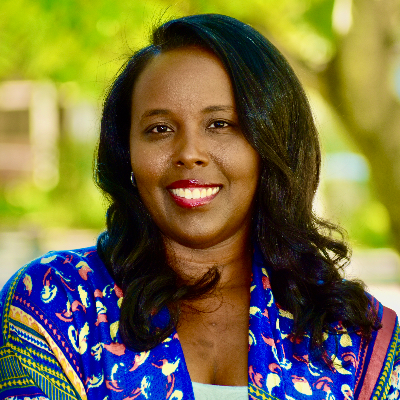
Robynn Cox, Ph.D.
2002 U.C. Denver
Robynn Cox is an assistant professor at the USC Suzanne Dworak-Peck School of Social Work. Her research interests include the fields of economics of crime, health economics, and labor economics; and are primarily focused on understanding the impact of incarceration on individuals, families, and society across the life course. Dr. Cox was a 2014-2015 RCMAR scholar at the USC Schaeffer Center, where her research explored the impact of incarceration on health outcomes over the life course. Most recently, she received a Russell Sage Foundation Presidential Authority Award to investigate the relationship between perceptions of criminality, race, trust, and employment outcomes. Dr. Cox’s research has also been funded by the University of Kentucky’s Center for Poverty Research through the Research Program on Childhood Hunger and the Young Investigator Development Grant. Her work has been published in various academic and policy outlets such as the Southern Economic Journal, Journal of Labor Research, and the Economic Policy Institute. She has also presented her research at numerous professional conferences.
Prior to her appointment to the USC Suzanne Dworak-Peck School of Social Work, Dr. Cox was an assistant professor at Spelman College and a postdoctoral associate in the Department of Economics at Duke University. She earned her M.A. and Ph.D. in Economics from Georgia State University, where she was awarded the Andrew Young Fellowship. Cox completed her undergraduate studies at Duke University where she obtained a dual A.B. in Economics and “Spanish and Latin American Studies.”

Luis Torres Ruiz, Ph.D.
2002 U.C. Denver
Luis Torres is a senior business economist in the San Antonio Branch of the Federal Reserve Bank of Dallas. Torres, who joined the Dallas Fed in 2022, performs research and analysis on issues impacting Texas, Mexico and the U.S.–Mexico border.
Torres received his bachelor’s degree in economics from the Monterrey Institute of Technology in Mexico. He received a master’s in economics from the University of Texas at El Paso, where his dissertation received honors. He later earned a scholarship to participate in the American Economic Association’s PhD Summer Minority Program. His PhD is from the University of Colorado at Boulder, where he specialized in international economics and econometrics.
During his doctoral studies, he worked at the El Paso Branch of the Dallas Fed. From 1995 to 2012, he was with Banco de México in the research and institutional liaison departments. Prior to joining the Dallas Fed, he served as a research economist at the Texas Real Estate Research Center at Texas A&M University, studying regional economies, developing economic indicators and researching real estate markets.
Torres has taught classes and seminars at U.S. and Mexican universities as well as in national and international forums. He has published articles in academic and nonacademic publications about regional economies, international economics, real estate, trade and applied econometrics.
Bradley Hardy, Ph.D.
2002 U.C. Denver
I am an associate professor in the McCourt School of Public Policy at Georgetown University. I am also a Nonresident Senior Fellow in Economic Studies at the Brookings Institution, and hold research affiliate appointments to poverty and inequality research centers at Columbia University, the University of Wisconsin-Madison, the University of Kentucky, and Washington University in St. Louis. At Georgetown, I teach courses on microeconomics and public finance.
My research examines intra and inter-generational economic outcomes across three overlapping themes: income and consumption volatility among low-income and disadvantaged families, analysis of U.S. income transfer policies and programs for low-income families, and the role of race and place as determinants of economic and policy outcomes. I explore the factors that shape the well-being of families and children—including parental and spatial economic conditions, public policies, and varying forms of structural social and economic inequality. Throughout my work, I consider how safety net programs can act as buffers against exposure to economic risk. I have provided expert testimony for Congress and local governmental commissions, as well as expert commentary for national and global news and media outlets.
My professional activities include membership on the American Economic Association Committee on Economic Statistics, and elected membership in the National Academy of Social Insurance. I am a coeditor at Contemporary Economic Policy, and have served on several expert panels focused broadly on poverty and inequality. Prior to joining Georgetown, I was a faculty member in the Department of Public Administration and Policy at American University, where I held leadership roles as Department Chair and Director of the master of public policy program. I hold a PhD in Economics from the University of Kentucky, an MPP from Georgetown University, and a BA in Economics from Morehouse College.

Terry-Ann Craigie, Ph.D.
2002 U.C. Denver
Terry-Ann Craigie is a labor economist whose research largely explores the intersectionality of mass incarceration, inequality and labor markets. Her early research examined paternal incarceration and disparities in early child outcomes. Currently, she evaluates the economic impact of mass incarceration, and whether justice-related policies can curb disparities in the criminal justice system and labor market.
Craigie teaches courses broadly related to her research expertise. At Smith, she teaches courses on statistics and econometrics; race, policy, and mass incarceration; and a seminar on the economics of discrimination

Carlos Vargas, Ph.D.
2002 U.C. Denver
Carlos Vargas-Silva is Director of the Centre on Migration, Policy and Society and Professor of Migration Studies at the University of Oxford. He is also co-founder and current Editor-in-Chief of the journal Migration Studies.
The overarching theme of Professor Vargas-Silva's research is the interaction of migration with labour markets, public services, and health outcomes, with a key focus on the role of policy in affecting those interactions. An important contribution of his work has been the application of concepts from economics to conceptualise migration decisions and the impacts of migration on host communities in the forced migration context. Bringing additional insights from other social sciences, Professor Vargas-Silva has developed conceptual frameworks and methodological approaches to investigate the evidence in this context.
Julian Snell, Ph.D.
2002 U.C. Denver
Currently works as a program analysts at the department of the Interior

Emily Conovoer, Ph.D.
2003 U.C. Denver
Emily Conover’s current research interests include health policy, political economy, and labor markets in developing countries among other topics in applied microeconomics. She grew up in Colombia and came to the United States for her undergraduate studies at Wellesley College. She then studied economics at the University of Paris I Pantheon-Sorbonne and went on to earn her doctorate in economics from U.C. Berkeley.

Ravaris Moore, Ph.D.
2003 U.C. Denver
Professor Ravaris Moore earned his B.A. at Morehouse College with a double major in Mathematics and Economics. He completed his doctoral studies in Sociology, as well as M.A. degrees in Sociology and Economics at UCLA. Prior to matriculating at UCLA, he contributed to several national evaluations as a Research Programmer at Mathematica Policy Research, Inc. in the areas of education, health, and child and family well-being. Professor Moore is a quantitative sociologist with training in the fields of Social Stratification and Social Demography. His work employs quantitative methods with large-scale microdata to explore questions of inequality at the intersection of race and ethnicity, education, and health. He is presently advancing papers that examine the effects of gun-violence on students and schools, and the effects of police shootings on implicit trust in law enforcement and subsequent inclinations to request police intervention. Other work investigates heterogeneity in the effects of parental incarceration on children’s educational and cognitive achievement.
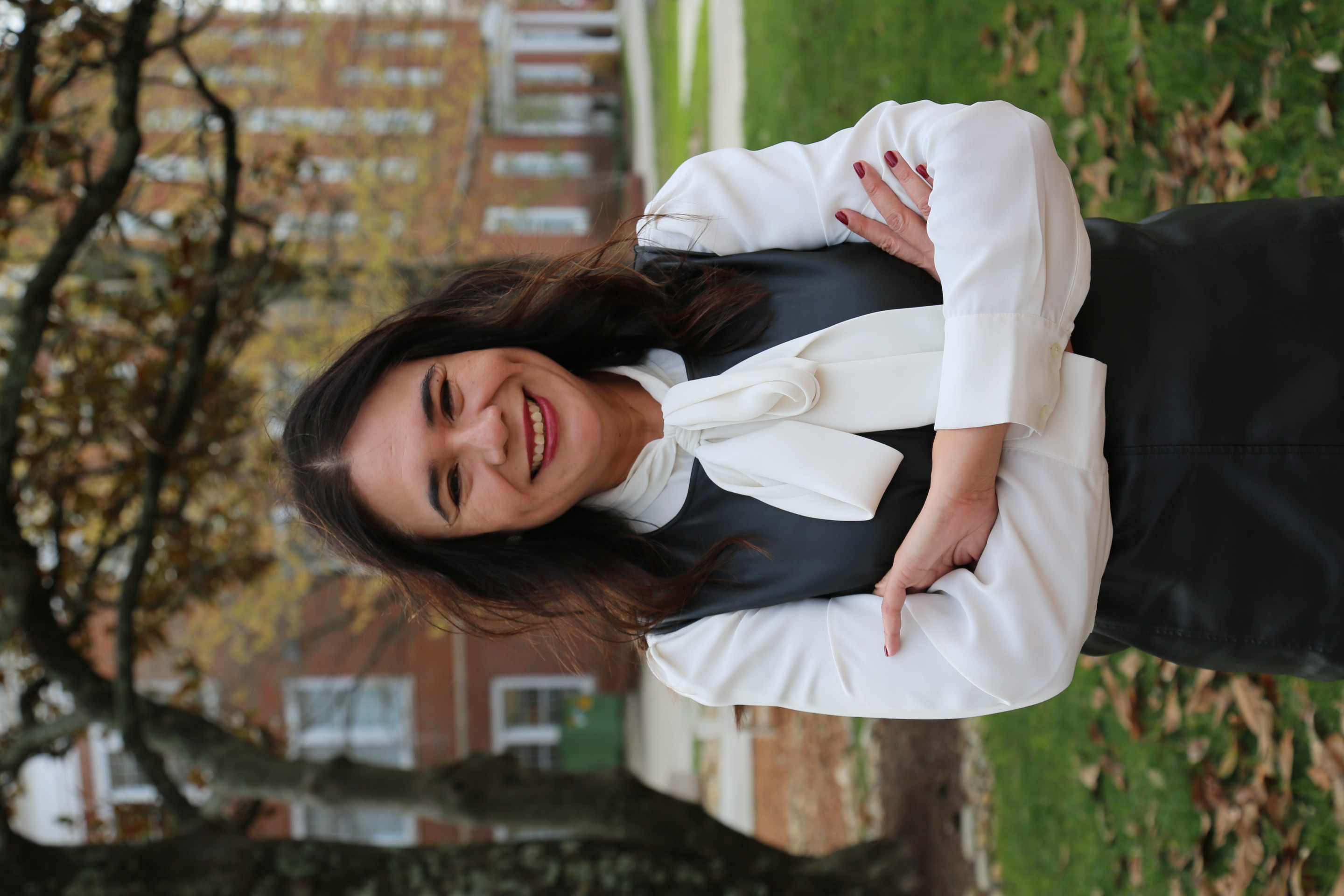
Alma Nunez, Ph.D.
2003 U.C. Denver
Alma D. Núñez is an Associate Professor of Finance at Tennessee Tech’s College of Business. She earned a PhD from the University of Texas-Rio Grande Valley in August 2012 and the CFA designation in April 2017. While Dr. Núñez has broad teaching experience, her primary teaching interests include corporate finance, international finance, and banking courses. Her passion for teaching earned Núñez the TTU Outstanding Faculty Award in Teaching in the spring of 2018. Dr. Núñez is also actively engaged with research. She has published work in multiple academic journals including the Quarterly Review of Economics and Finance and the Journal of Economics and Finance Education. She has also presented her research at multiple academic conferences. Her current research interests include: internationally cross-listed firms, finance pedagogy, and financial literacy.
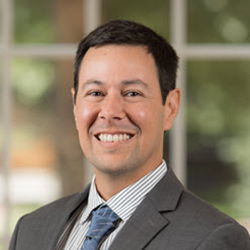
J. Alejandro Gelves, Ph.D.
2003 U.C. Denver
Dr. J. Alejandro Gelves is a Clinical Associate Professor at William & Mary’s Mason School of Business. Dr. Gelves received a Ph.D. in Economics from the University of Wisconsin-Milwaukee and a M.S. in Business Analytics from the College of William and Mary. Before joining the Mason School, Dr. Gelves taught at the University of North Texas.
Dr. Gelves has published in top economic journals including the Journal of Environmental Economics and Management, Environmental and Resource Economics and Economic Modeling. He has been a reviewer for Economic Inquiry, Southern Economic Journal, and Economic Modeling among others. Dr. Gelves has also served as a consultant for several organizations such as United Way, Cook Children’s Medical Center and Georgia Medical Regents Center.
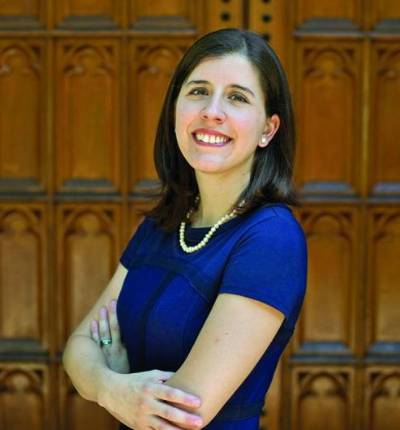
Mariana Carrera, Ph.D.
2004 Duke
I am an Associate Professor of Economics at Montana State University who specializes in health economics and behavioral economics. I am also a Research Associate at the NBER and currently serve as an Associate Editor at JEBO.
I use applied microeconomics tools and field experiments to tackle policy-relevant questions. In recent work, I've studied how healthcare providers choose treatments for patients when they face information and agency problems, how consumers respond to new information about their own health and learn from the choices of others, and how incentives should be designed to maximize health behavior change.
My research has been published in the Review of Economic Studies, Management Science, AEJ-Applied, AEJ-Policy, and the Journal of Health Economics, among others.
Before arriving at MSU in 2018, I was an Assistant Professor at Case Western Reserve University and completed my PhD in Economics at U.C. Berkeley. Prior to graduate school, I was a University Scholar at Duke University and participated in the American Economic Association's Summer Training Program.
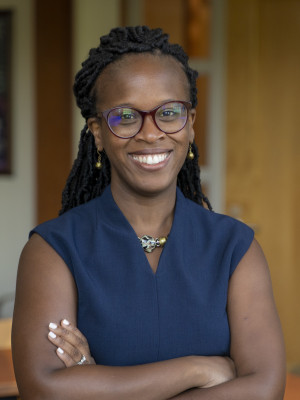
Feneba Addo, Ph.D.
2005 Duke
Fenaba R. Addo is an associate professor of public policy. Her recent work examines debt and wealth inequality with a focus on family and relationships and higher education, and union formation and economic strain as a social determinant of health and well-being. She has also focused on the role that consumer and family policies serve in reinforcing these relationships.
Widely published in academic journals and policy outlets, her work on racial disparities in student debt, older Black women and wealth, and the Millennial racial wealth gap reflects her interests in bridging social demography with economic inequality, and sheds light on the ways that societal inequalities stem from historical legacies of racial exclusion and discrimination, and how they get reproduced over time. Dr. Addo was a Robert Wood Johnson Foundation Health & Society Scholar. She received her Ph.D. in Policy Analysis and Management from Cornell University and holds a B.S. in Economics from Duke University. Dr. Addo was the Lorna Jorgensen Wendt Associate Professor of Money, Relationships, and Equality (MORE) in the School of Human Ecology’s Department of Consumer Science at the University of Wisconsin-Madison prior to joining the department.
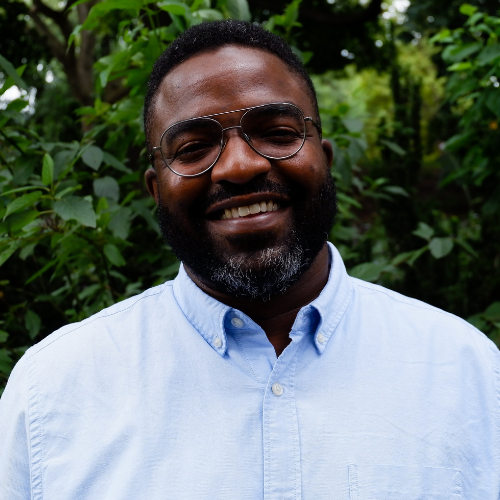
Karl Boulware, Ph.D.
2005 Duke
Karl Boulware is an Associate Professor of Economics at Wesleyan University. He is an applied macroeconomist who studies macroeconomic aspects of racial inequality. His recent research addresses topics such as racial wealth stratification and the frequency of discrimination charges over the business cycle. Past work has explored how time inconsistent preferences by individuals can lead to undersaving and underinvestment in human capital in the aggregate. Dr. Boulware’s work has appeared in journals such as Empirical Economics, Economics Letters, Economics Bulletin, and AEA Papers and Proceedings. At Wesleyan, Professor Boulware teaches courses on intermediate macroeconomics, introductory econometrics, financial crises, and the monetary transmission mechanism.

Jonathan Burns, Ph.D.
2005 Duke
When I graduated from undergrad, the energy industry was something that I had never studied. As my interest in the vital industry grew, I recognized that though we've begun an energy transition from fossil fuels to renewable sources, there are ongoing challenges that need to be addressed in the space. No matter which organization I've worked with, I've had the same goal, to help build more optimal and efficient energy markets.
Throughout my time at Tricon Energy, SIBS International, and Par Energy, I've led global teams in building and executing energy hedging strategies to optimize margins. In each of these roles, I've streamlined middle office operations by building reporting infrastructure from the ground up, providing more accurate financials to drive better decision making. I've also worked to develop policies that hedge price risk, which has helped the organizations lock in margins for the commodities they sell. I'm proud of each of these actions as they not only improved the organizations I worked for but helped advance the energy market as a whole.
Outside of the office, I enjoy traveling, spending time with family, and watching (and critiquing) movies. You might also catch me watching the NBA, NFL, and college sports rooting for any Ohio team and the Duke Blue Devils. Il'm also really into fitness, and though try to train like l'm going pro, it serves as a great stress reliever for me,
If you're interested in connecting, please feel free to do so here or via email at jongburns@gmail.com.

EJ Ume, Ph.D.
2005 Duke
Dr. Ume's research is centered on housing, monetary policy, banking, and various facets within the macroeconomic landscape. His studies encompass a range of factors, including the influence of mortgage recourse provisions on housing prices, the ramifications of time inconsistency on saving and human capital investment, the interplay between housing market frictions and labor market activity, the transmission of monetary policy to the housing sector, and the implications of bank branch deregulation.
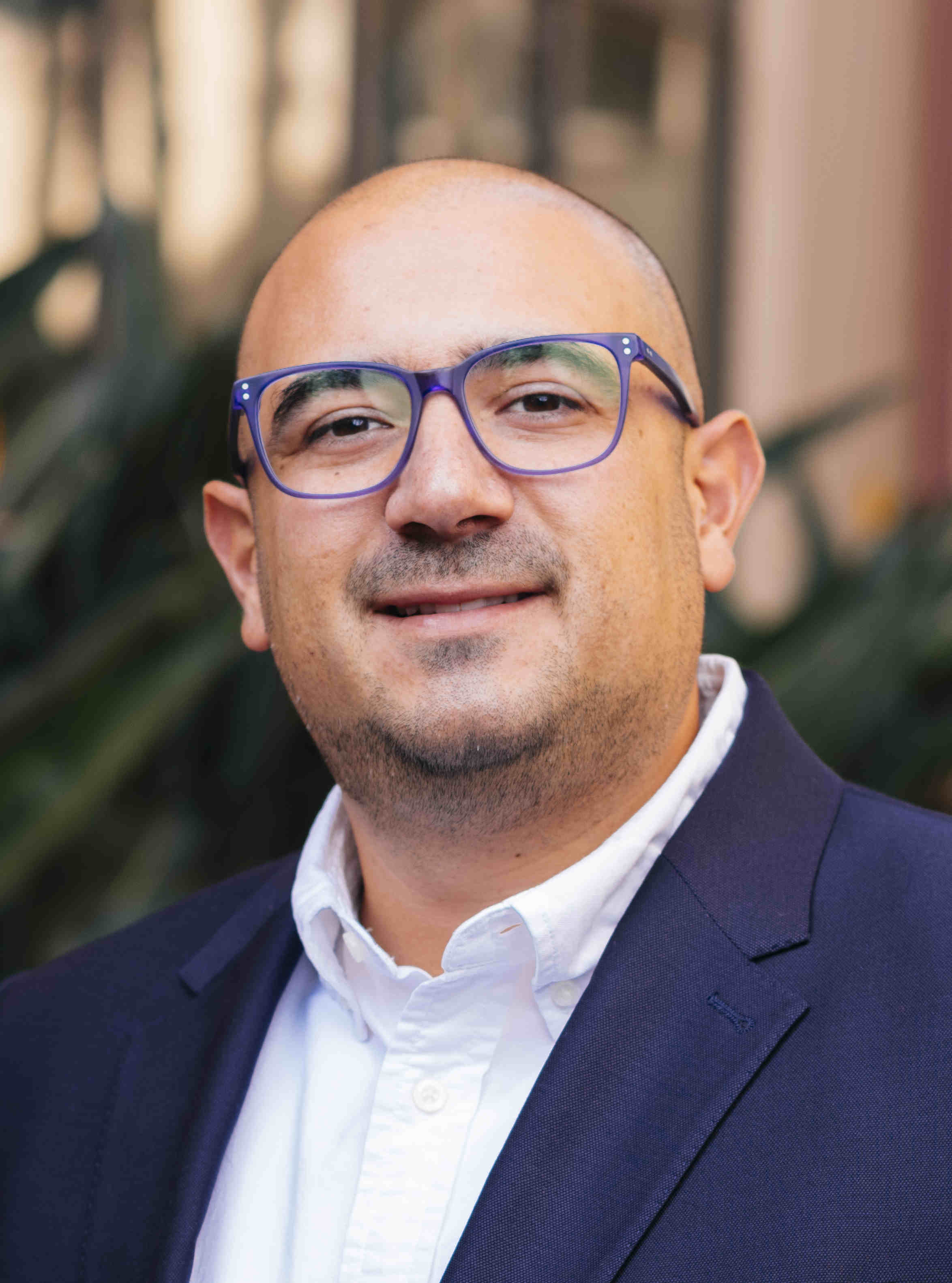
Juan Carlos Suarez, Ph.D.
2005 Duke
Juan Carlos Suárez Serrato is a Professor of Economics at the Stanford Graduate School of Business and a Faculty Associate at the National Bureau of Economic Research. He is also the Jose E. Feliciano and Kwanza Jones SUPERCHARGED Faculty Fellow for the 2022-23 academic year. He was previously a Professor of Economics at Duke University and a Post-doctoral Fellow at the Stanford Institute for Economic Policy Research. He received a Ph.D. in economics from UC Berkeley, a B.A. in economics and mathematics from Trinity University, and he is a proud graduate of the AEA Summer Training Program in Economics.

Aubrey Philibert
2005 Duke
Phillibert began his career with FirstService Residential in 2007 and was most recently a managing director. He graduated summa cum laude from the University of Massachusetts Amherst with a bachelor’s degree in economics and was a National Science Foundation Scholar for advanced studies in economics. He also completed postgraduate studies in economics at Duke University. Phillibert is a Licensed Real Estate Agent, a Registered Apartment Manager (RAM®), and a LEED® certified professional.
Denrick Bayot, Ph.D.
2005 Duke
Senior Economist at Amazon Web Services
Marquise McGraw, Ph.D.
2005 Duke
Clinical Assistant Professor, Health Systems and Population Health, Affiliate Assistant Professor, Evans School
Research interests include: Health insurance status and the organization of the healthcare system impacts on healthcare cost and quality
Johnny Ducking, Ph.D.
2005 Duke
Dr. Ducking received his Ph.D. and MS in Economics from the University of Kentucky. He earned his MA in Economics and his BA in Economics and Math from the University of Mississippi. Dr. Ducking specializes in labor and sports economics with a focus on discrimination and minimum salaries. He has been published in journals such as Industrial Relations: A Journal of Economy and Society, Applied Economics, The Review of Black Political Economy, and Applied Economics Letters. He is a member of the American Economic Association, the National Economic Association, and the North American Association of Sports Economists.
Jerome Dugan, Ph. D.
2006 Duke
Clinical Assistant Professor, Health Systems and Population Health, Affiliate Assistant Professor, Evans School
Research interests include: Health insurance status and the organization of the healthcare system impacts on healthcare cost and quality

Norma Padron, Ph.D.
2006 Duke
Dr. Norma Padrón is a Health Economist and entrepreneur, Founder, and CEO of EmpiricaLab—a company specializing in peer–to–peer training within healthcare organizations to accelerate their digital transformation.
She earned a Ph.D. in health economics from Yale University, a master's degree in economics from Duke University, a master's degree in public health from Universitat Pompeu Fabra in Barcelona, Spain, and a bachelor's degree in economics and math from the University of Texas, Rio Grande Valley.
She has held leadership roles in the healthcare industry, including academia, nonprofit, and private sectors. She has led data analytics and technology teams focusing on improving patients' and providers' digital health and care delivery models, designing value-based care models, and quality and performance measurement and training.
Dr. Padrón is committed to advancing diversity in STEM fields, and has served on boards to promote education and technology, including as Chair of the industry advisory board for an NSF Industry-University Cooperative Research Center focused on improving healthcare through organizational transformation.
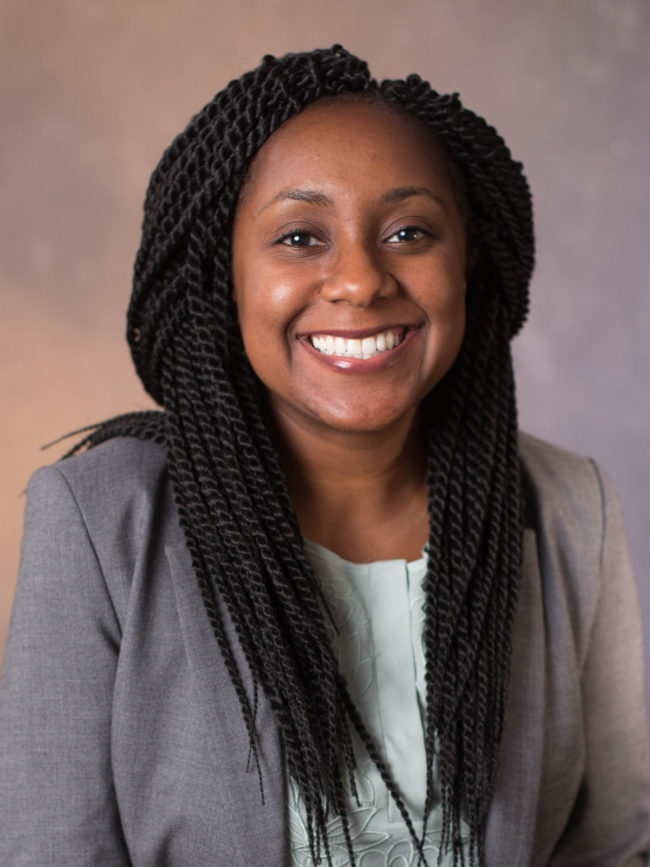
Janelle Jones
2006 Duke
Janelle Jones was an economic analyst at the Economic Policy Institute through 2018. She is an economic analyst working on a variety of labor market topics within EPI’s Program on Race, Ethnicity, and the Economy (PREE) and the Economic Analysis and Research Network (EARN). She was previously a research associate at the Center for Economic and Policy Research (CEPR), where she worked on topics including racial inequality, unemployment, job quality, and unions. Her research has been cited in The New Yorker, The Economist, Harper’s, The Washington Post, The Review of Black Political Economy, and other publications. She also worked as an economist at the Bureau of Economic Analysis.
Jones served as an AmeriCorps*VISTA volunteer in Sacramento, California, where she worked for a grassroots nonprofit focused on community health issues. She also served as a Peace Corps volunteer in Peru in the Small Business Development Program focusing on local economic development.
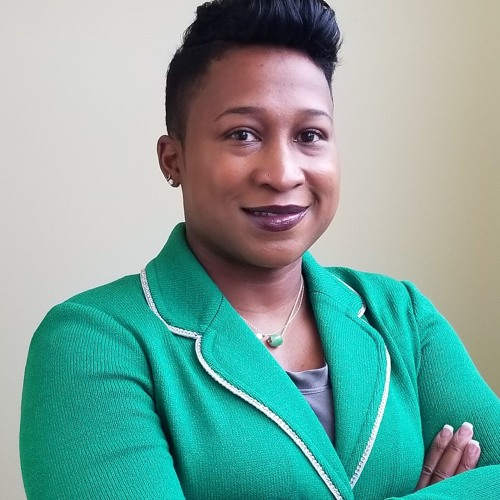
Kristen Broady, Ph.D.
2007 Duke
Kristen Broady is a senior economist, economic advisor, and director of the Economic Mobility Project at the Federal Reserve Bank of Chicago. Broady is a nonresident senior fellow at Brookings Metro. Before joining the Chicago Federal Reserve, Broady served as a fellow at Brookings Metro, performing research and analysis on areas that include the racial wealth gap, the return to education investment, and the disparate economic impact of the COVID-19 pandemic. In addition, Broady has conducted research on mortgage foreclosure risk, labor and automation, and racial health disparities.
Broady is an adjunct professor of econometrics and statistics at the University of Chicago Booth School of Business and has served on the faculties of Spelman College, Alabama A&M University, Dillard University, Dominican University, Fort Valley State University, Howard University, Kentucky State University, and as a visiting faculty member at Jiangsu Normal University in Xuzhou, China. Broady served as a consultant for the Joint Center for Political and Economic Studies in Washington, D.C.; a senior research fellow for the Center for Global Policy Solutions in Washington, D.C.; a consultant for the City of East Point, Georgia and as an HBCU consultant for season two of The Quad on Black Entertainment Television (BET) in Atlanta.
Broady earned a bachelor’s in criminal justice at Alcorn State University and a master of business administration and a doctorate in business administration with a major in economics at Jackson State University
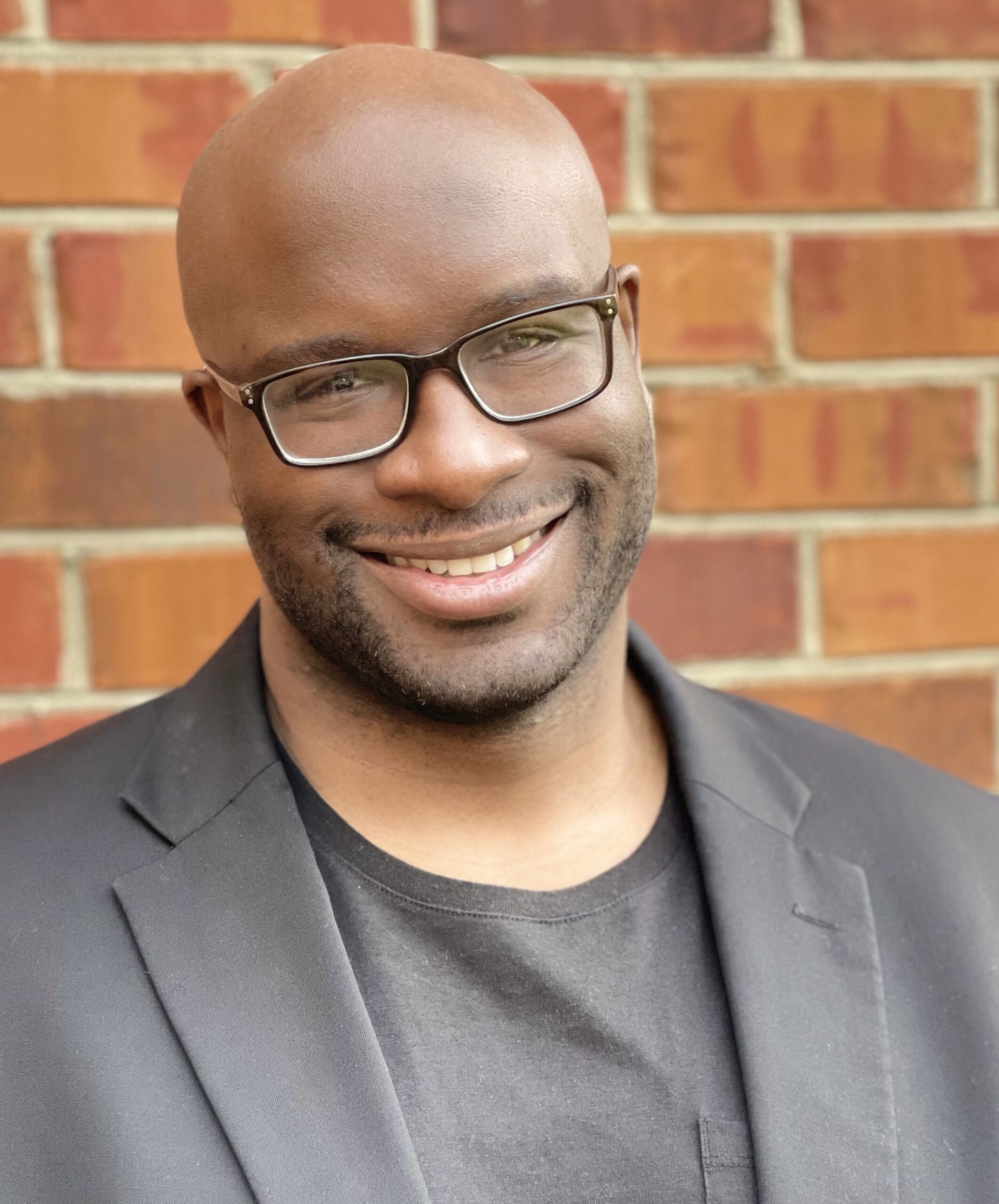
Jamein Cunningham, Ph.D.
2007 Duke
Dr. Jamein P. Cunningham is an Assistant Professor in the UT School of Law and LBJ School of Public Affairs at The University of Texas at Austin. His teaching and research interests include law and economics, urban economics, economics of crime, and microeconometrics.
Dr. Cunningham held previous positions at Cornell University, the University of Memphis, and Portland State University, where he taught urban economics, econometrics, labor economics, and economics of discrimination. Prior to joining the faculty at Portland State University, Dr. Cunningham was a Ph.D. candidate in the Department of Economics and a Populations Studies Center Graduate Trainee at the University of Michigan. He was a recipient of the Rackham Merit Fellowship and the Eunice Kennedy Shriver National Institute in Child Health and Development Fellowship. Before obtaining a Ph.D. at the University of Michigan, he completed his undergraduate degree at Michigan State University and the master's degree program in economics at the University of North Texas.
Previously, Dr. Cunningham was a faculty affiliate at the Cornell Population Center, PSI Center for Workplace Diversity and Inclusion, and the Data Science Cluster at the University of Memphis, and served as a research affiliate at the Center for Studies in Demography and Ecology at the University of Washington. Currently, Dr. Cunningham is an Emerging Poverty Fellow at the Institute of Research on Poverty at the University of Wisconsin and holds professional memberships in the American Economic Association, the Southern Economic Association, the American Law and Economics Association, the Racial Democracy, Crime, and Justice Network, and the National Economic Association.

Miesha Williams, Ph.D.
2007 Duke
Dr. Miesha Williams, Associate Professor and Vice Chair of the Spelman College Economics Department. Prior to joining Spelman, she completed a position as Visiting Scholar with USC Price Public Policy School and was previously employed by Morehouse College. She researches macroeconomic policies in Africa and the U.S as well as disparate outcomes impacting race. She’s obtained grants and scholarships from Title III, NSF, USDA, Carnegie Foundation, Koch Foundation and NIH. She’s published in AEA Papers and Proceedings, Southern Economic Journal, Journal of Economics Race and Policy, Review of Black Political Economy, and co-edited a special issue on Social Justice with the Agricultural and Resource Economics Review. She is a National Economic Association board member, secretary to the African Political Economic Association, and Research Associate with University of New Orleans Entrepreneurship Center. Williams’ Economics’ B.S. (2007) is from Florida A&M University, while her Economics M.A. (2010) and Ph.D. (2014) are from University of Alabama.
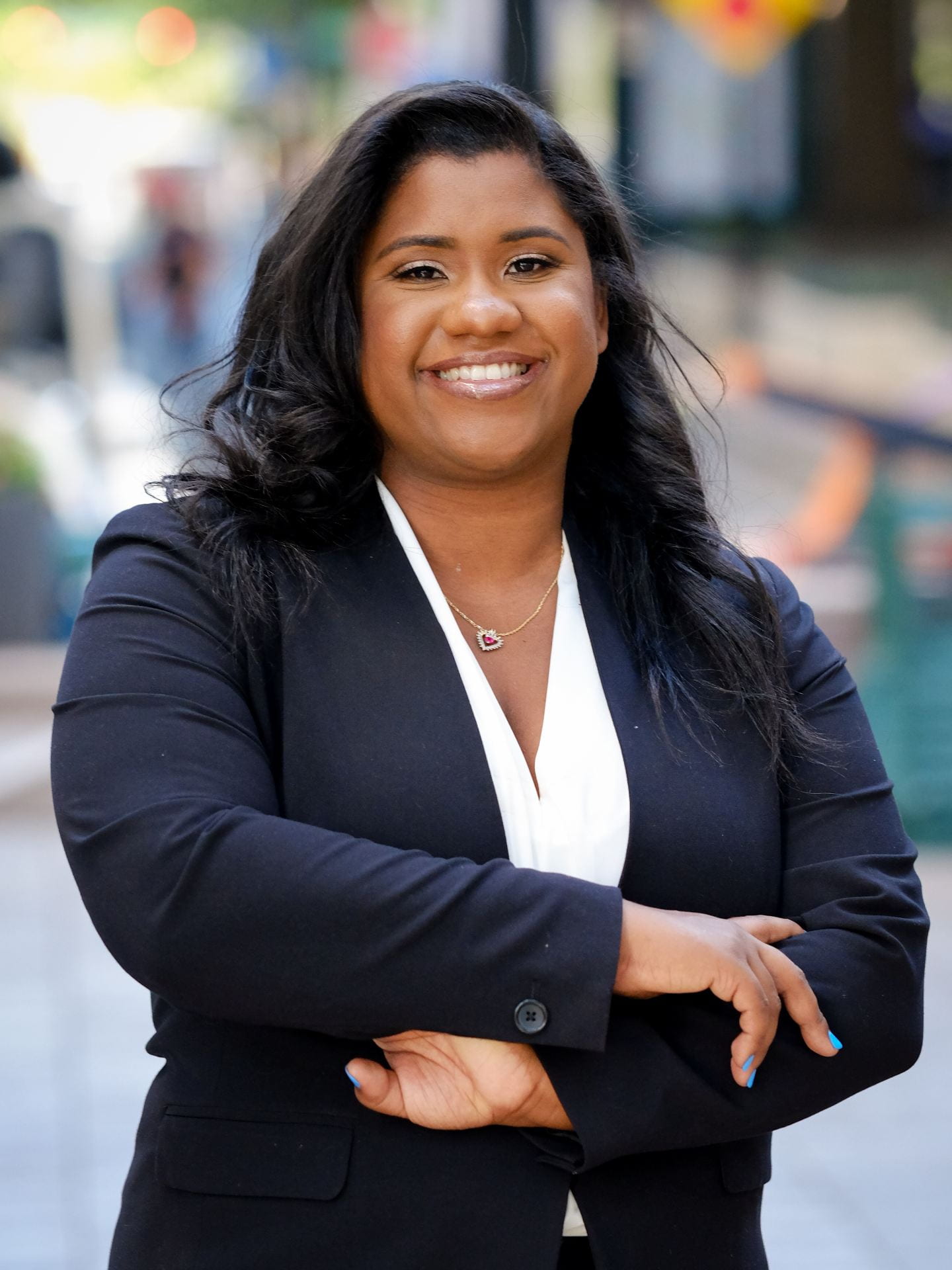
Carycruz Bueno, Ph.D.
2008 UCSB
Carycruz Bueno is an Assistant Professor of Economics at Wesleyan University. She is an applied microeconomist who studies how education policy can eradicate education inequality. Her research addresses topics such as virtual schools, school choice, teacher labor markets, and student non-cognitive skills. Her research interest stems from her experience as a special education teacher. She has received funding from the National Science Foundation, ASHE, and National Economics Association. In 2021, She was named an Emerging Education Policy Scholar by Thomas B. Fordham Institute. Prior to joining Wesleyan University, she was a Postdoctoral Researcher at Brown University. Dr. Bueno has been featured in The Atlantic, NPR’s Planet Money, Bloomberg, and Politico Nightly.
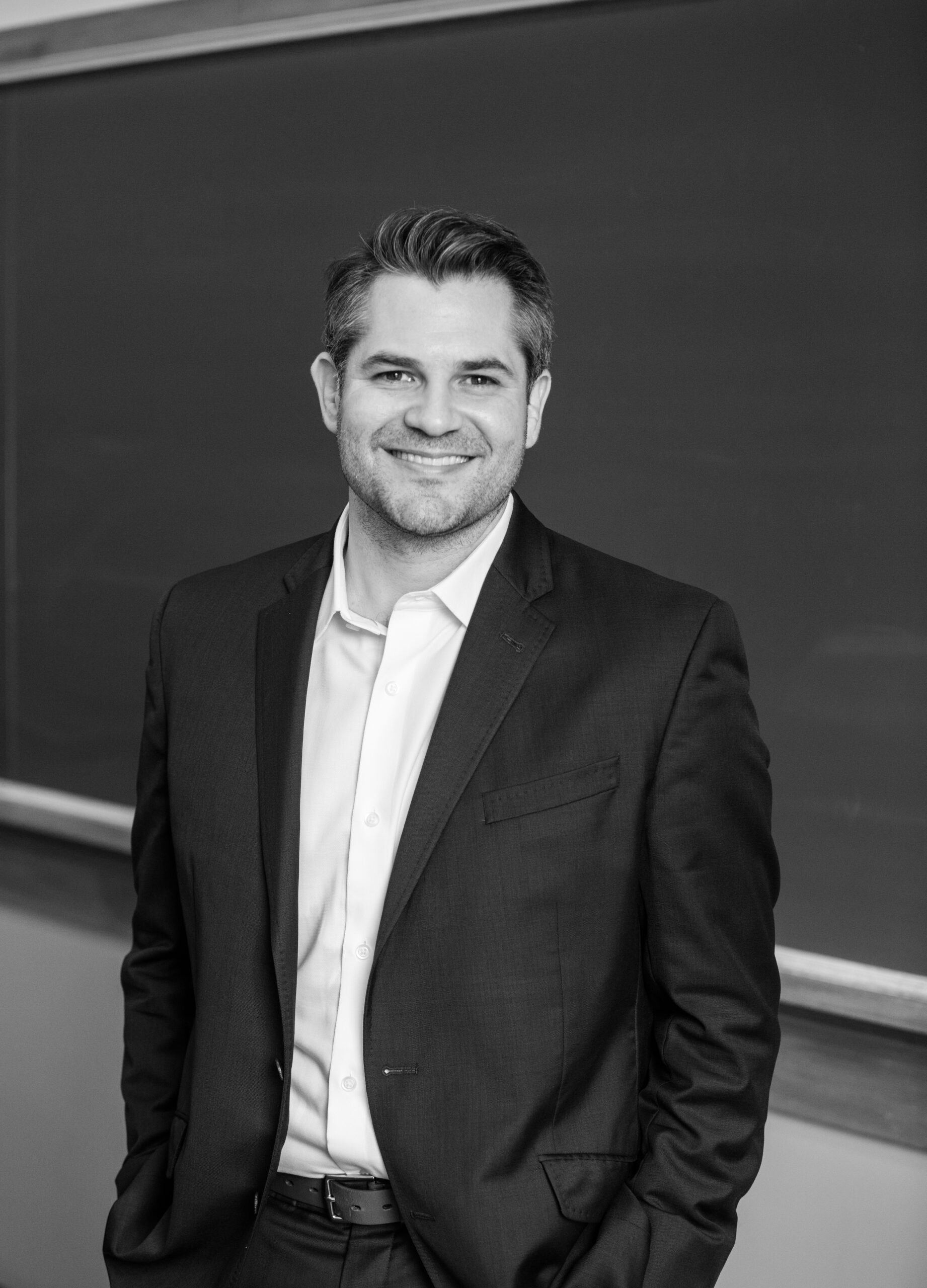
Zachary Bethune, Ph.D.
2008 UCSB
Zach Bethune is an Associate Professor of Economics with a specialization in macroeconomics and finance. His most recent research focuses on the distributional consequences of inflation and the role of private information in determining the structure of trade in financial markets. He has published in the Review of Economic Studies, the Journal of Economic Theory, and the Review of Economic Dynamics, amongst others. He is a member of the Financial Theory Group (FTG) and a co-organizer of the Search and Matching in Macroeconomics and Finance (SaMMF) seminar and workshop series.
Zach received a Ph.D. and M.A. in Economics from the University of California, Santa Barbara in 2015 and a bachelor’s degree in Economics and Mathematics from Sam Houston State University in 2008. He previously held a position at the University of Virginia as an associate professor (with tenure) and visiting appointments at the University of California, Los Angeles, and the Federal Reserve Bank of Richmond.
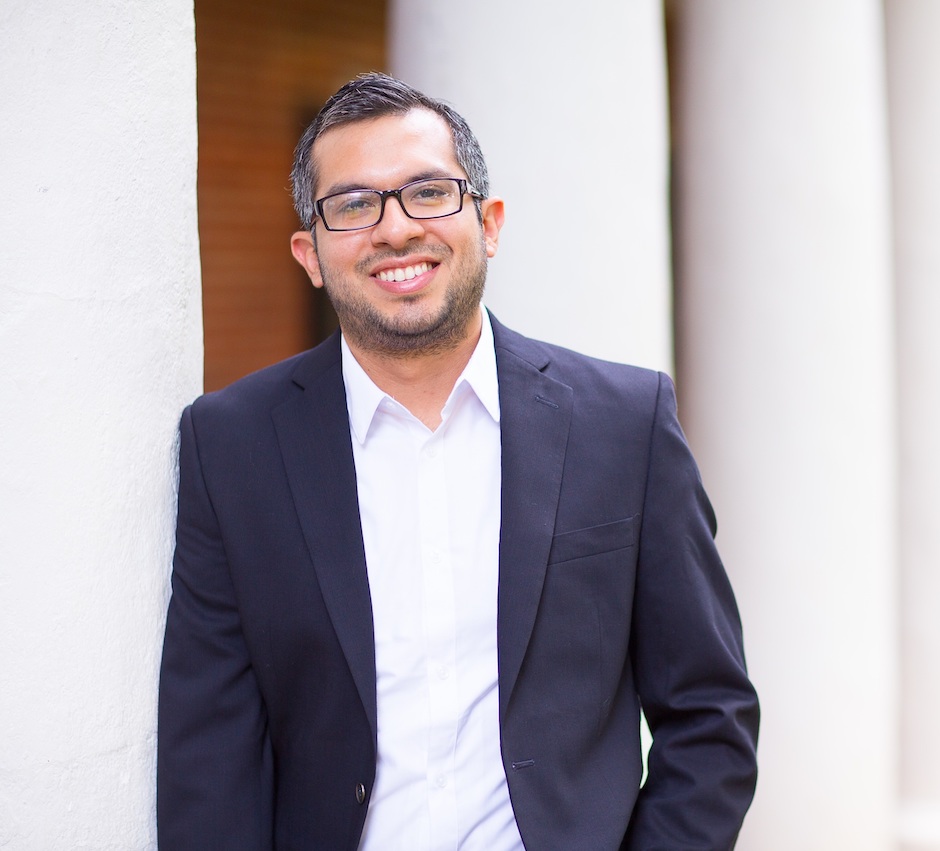
Sebastian Tello-Trillo, Ph.D.
2009 UCSB
Sebastian Tello-Trillo is an Assistant Professor of Public Policy and Economics at the Frank Batten School of Leadership and Public Policy at the University of Virginia and a Faculty Research Fellow at the National Bureau of Economic Research (NBER). His fields of specialization are Health Economics and Applied Microeconomics. He researches topics related to health insurance, mental health, Medicaid, health behaviors, and HIV. He has interest in the areas of health policy in the U.S and Latin America.
With Alex Hollingsworth, he is the co-host of the podcast "The Hidden Curriculum", a podcast on topics of productivity in the economics profession. He also gladly helps out with the organization EconThaki, an organization that’s helping decrease the barriers of the path for PhD in Econ by providing information and classes.

Britni Erin Wilcher, Ph.D.
2009 UCSB
Zach Bethune is an Associate Professor of Economics with a specialization in macroeconomics and finance. His most recent research focuses on the distributional consequences of inflation and the role of private information in determining the structure of trade in financial markets. He has published in the Review of Economic Studies, the Journal of Economic Theory, and the Review of Economic Dynamics, amongst others. He is a member of the Financial Theory Group (FTG) and a co-organizer of the Search and Matching in Macroeconomics and Finance (SaMMF) seminar and workshop series.
Zach received a Ph.D. and M.A. in Economics from the University of California, Santa Barbara in 2015 and a bachelor’s degree in Economics and Mathematics from Sam Houston State University in 2008. He previously held a position at the University of Virginia as an associate professor (with tenure) and visiting appointments at the University of California, Los Angeles, and the Federal Reserve Bank of Richmond.
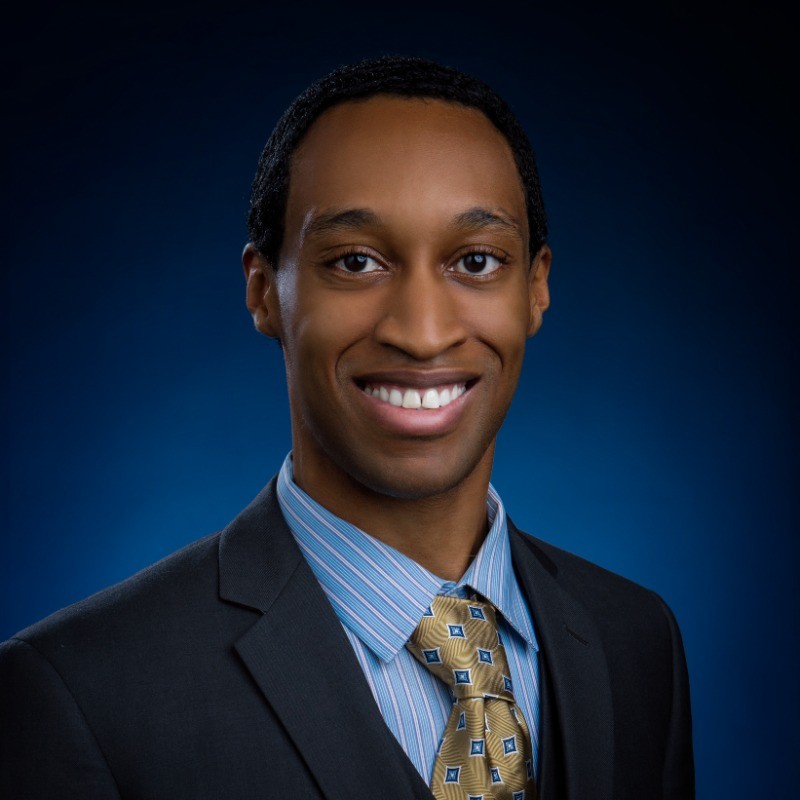
Benjamin Rosa, Ph.D.
2008 UCSB
Benjamin Rosa is an assistant professor at the Stephen M. Ross School of Business in the Business Economics and Public Policy area. My research fields are empirical industrial organization and public economics, with a focus on government procurement.
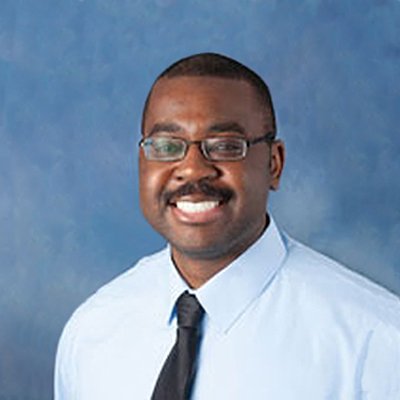
Amaze Lusompa, Ph.D.
2012 UNM
Amaze Lusompa is an Economist in the Economic Research Department of the Federal Reserve Bank of Kansas City. Prior to joining the department in 2020, Amaze received a Ph.D. in economics from the University of California, Irvine. He also holds a B.A. in economics from NC A&T State University and an M.S. in Economic and Statistical Modeling from Duke University. His primary research interests are in econometrics and macroeconomics.
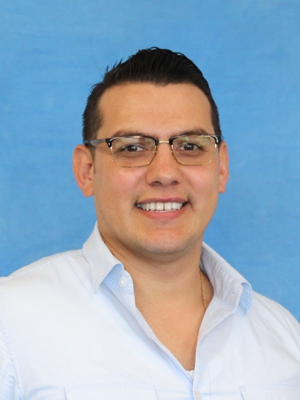
Joaquin Rubalcaba, Ph.D.
2012 UNM
Joaquín Alfredo-Angel Rubalcaba's research aims to uncover the inequalities that cut across race, ethnicity, gender and class, and is primarily situated within health and labor economics. His research has ranged from studies on how immigration policies influence labor market behavior, ethnic discrimination, and access to health care to estimating the economic value of racial inequalities.
Dr. Rubalcaba is a first-year Assistant Professor in the Department of Public Policy at UNC. He earned his PhD in Economics from the University of New Mexico, after serving for six years in the U.S. Air Force (Honorably Discharged in 2010). Dr. Rubalcaba in an economic demographer working on health, well-being and labor market outcomes of vulnerable groups in the U.S. His dissertation applies demographic techniques to predict immigration status in U.S. population-based data sets such as the Current Population Survey and the American Community Survey. He uses this empirical framework to assess the effects of public policies on documented and undocumented immigrants.
Beyond the health and well-being of immigrants, Dr. Rubalcaba has a growing research agenda that focuses on the well-being of veterans. As a PhD student at University of New Mexico, Dr. Rubalcaba was a pre-doctoral trainee at the Robert Wood Johnson Center for Health Policy Research, and thus has experience working in a multidisciplinary research environment with scholars from different disciplines. As a PhD student, Dr. Rubalcaba also participated in the American Economic Association Summer Training Program designed for students from underrepresented groups in the Economics profession, and he currently serves on the Policy Council of the Association for Public Policy and Management (APPAM), the main professional society in the Public Policy discipline.

Jermaine Toney, Ph.D.
2012 UNM
Jermaine Toney, Ph.D. is an Assistant Professor at the Bloustein School. He was selected to receive a 2023-2024 National Bureau of Economic Research (NBER) Fellowship on Racial and Ethnic Disparities in Economic Outcomes. Professor Toney was a member of the 2022-2023 cohort of Early Career Faculty Fellows in the Institute for the Study of Global Racial Justice at Rutgers University. His work has been supported by an Early Career Award (Pipeline Grants Competition) from the Russell Sage Foundation and Bill and Melinda Gates Foundation. Prior to joining the Bloustein School faculty, he was a National Science Foundation Postdoctoral Research Fellow in the Dyson School of Applied Economics and Management at Cornell University. Currently, Professor Toney is a research fellow with the Institute for Behavioral and Household Finance at Cornell University.
Dr. Toney’s research focuses on finance, family, and health. An overarching focus of his research is the distribution and stratification of various socio-economic indicators, such as wealth, income, and education. His current work examines the transmission of socioeconomic status across generations, intergroup experiences in accessing credit and asset markets, analytic approaches to measuring the racial wealth gap, how disparities in health affect a household’s financial marketplace participation. Professor Toney previously taught in the Department of Economics at Queens College, City University of New York.
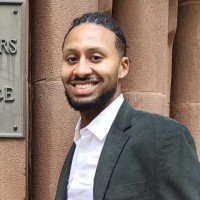
Theo Pippins, Ph.D.
2013 UNM
Theo Pippins earned his PhD in Economics and Education and is now the Lead Education Research Analyst
DC Office of the State Superintendent of Education (OSSE). He also was a senior research associate at the Association of College and University Educators (ACUE) in New York. He started at CCRC in September 2017 and contributed his skills to a project on the humanities and liberal arts education at community colleges, which he said taught him how to carry out a research project from beginning to end.
Thank you To Our Alumni!
As we celebrate the achievements of our remarkable alumni, we are reminded of the profound impact they have had on our institution and the world at large. Their diverse contributions in various fields serve as a testament to the transformative power of education.
Each alumni featured on this page has not only excelled in their respective endeavors but has also embodied the values and spirit of our institution. Their successes reflect the unwavering commitment to excellence that defines our community
Their achievements serve as a testament to the rigorous academic training and intellectual curiosity fostered within our institution. Through their leadership and expertise, they have helped shape the economic and social landscapes of our time, leaving a lasting legacy for future generations.
We extend our heartfelt gratitude to all our alumni for their ongoing support and dedication. Together, we can continue to make a difference and create a brighter tomorrow for generations to come.

